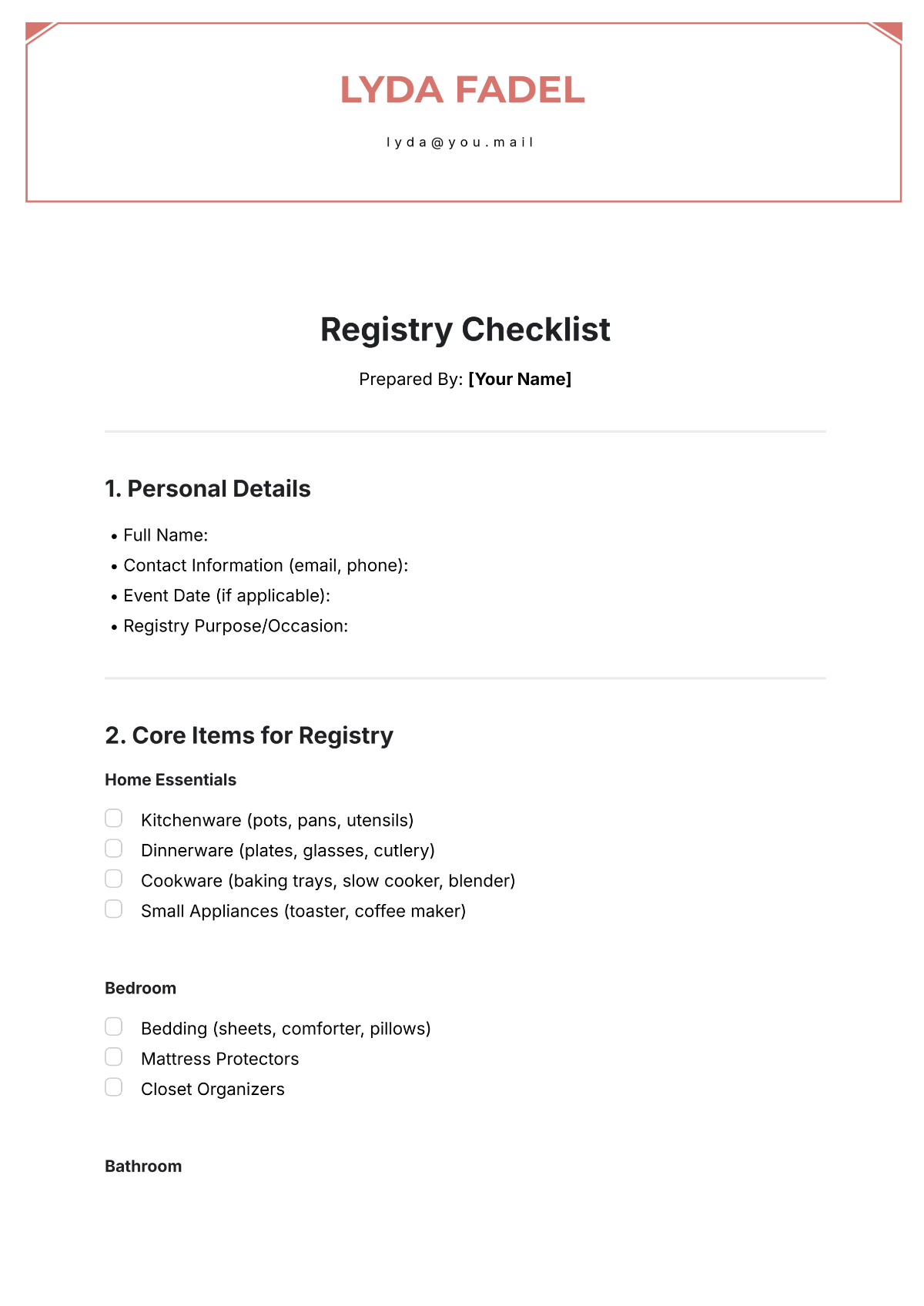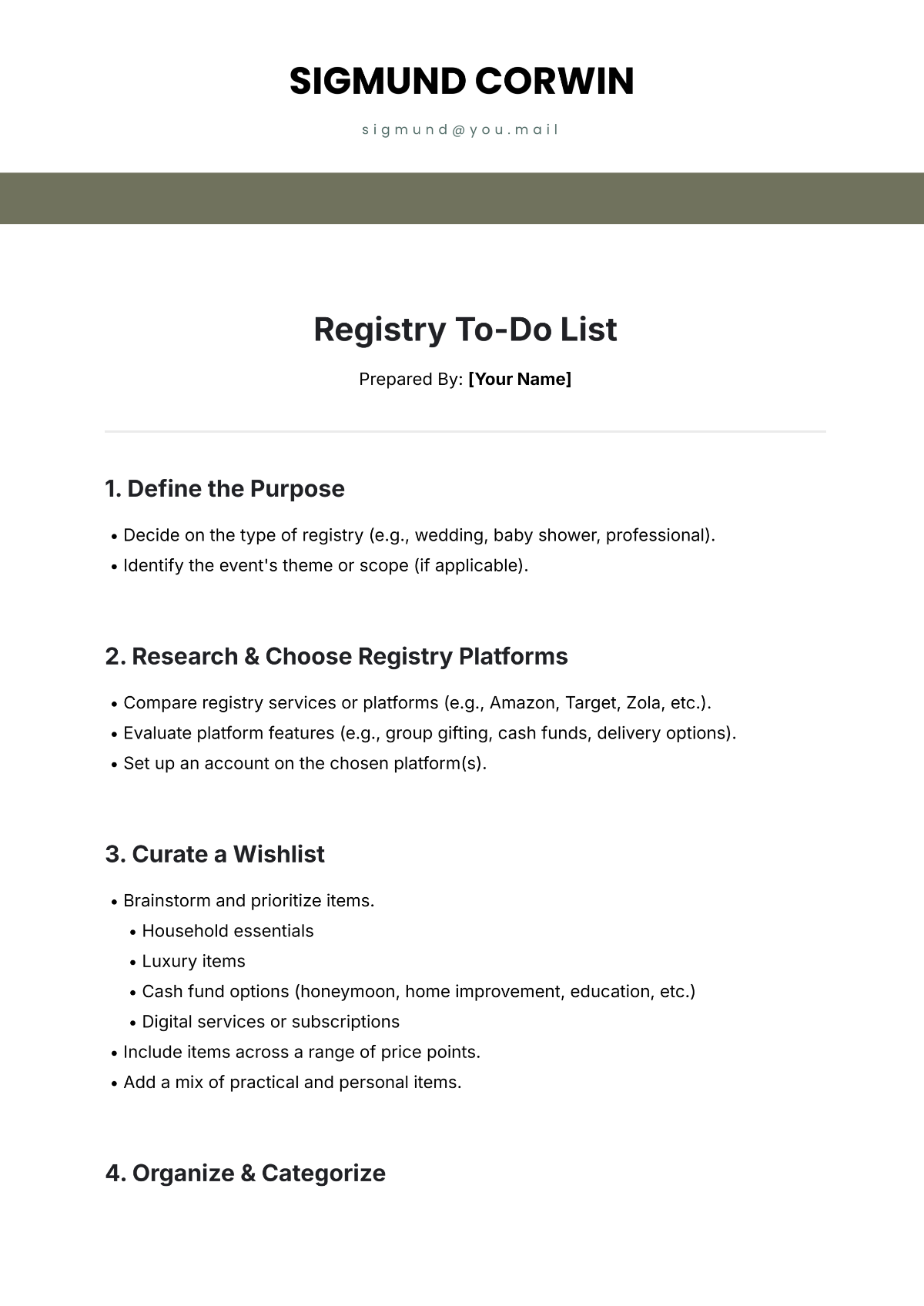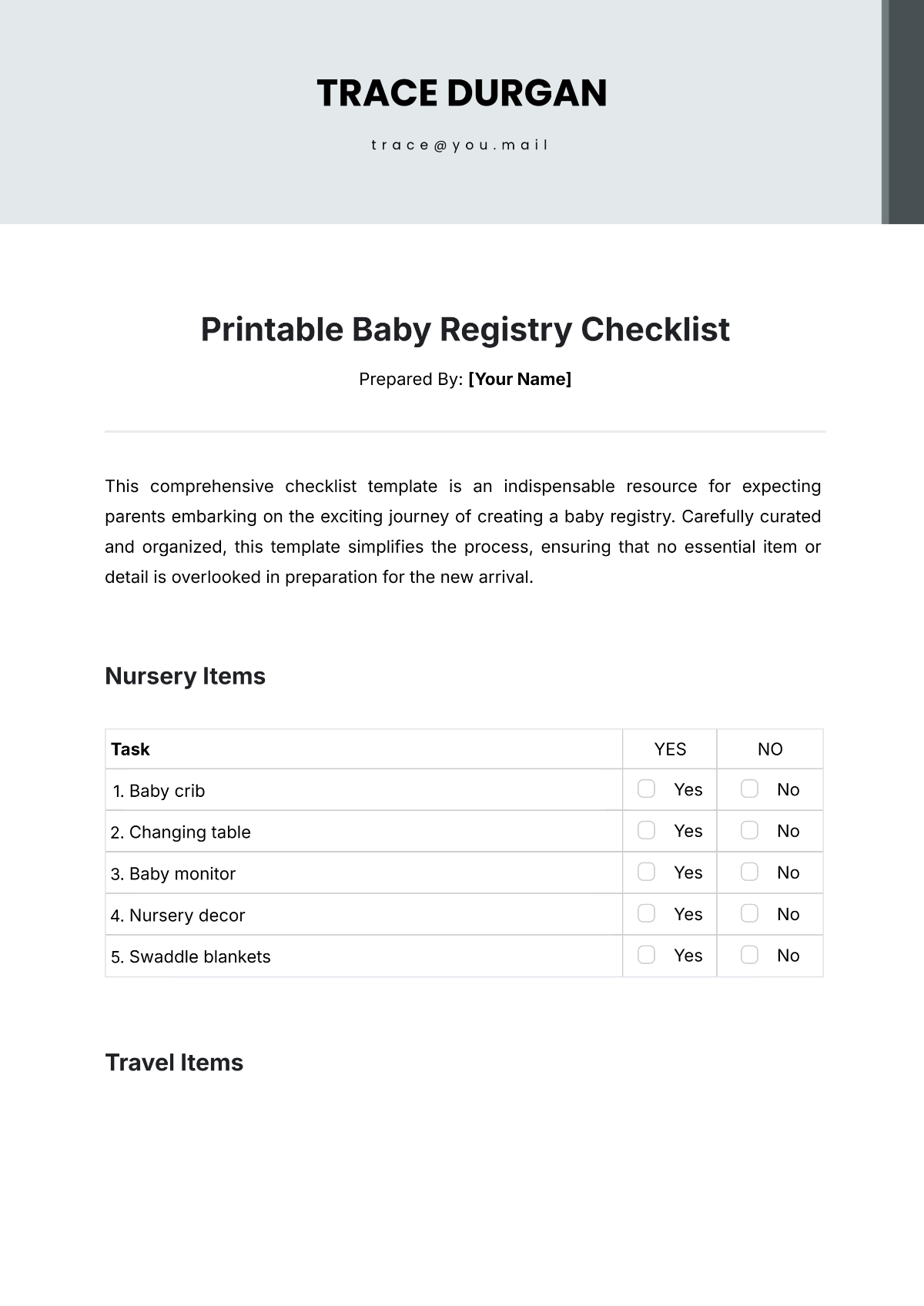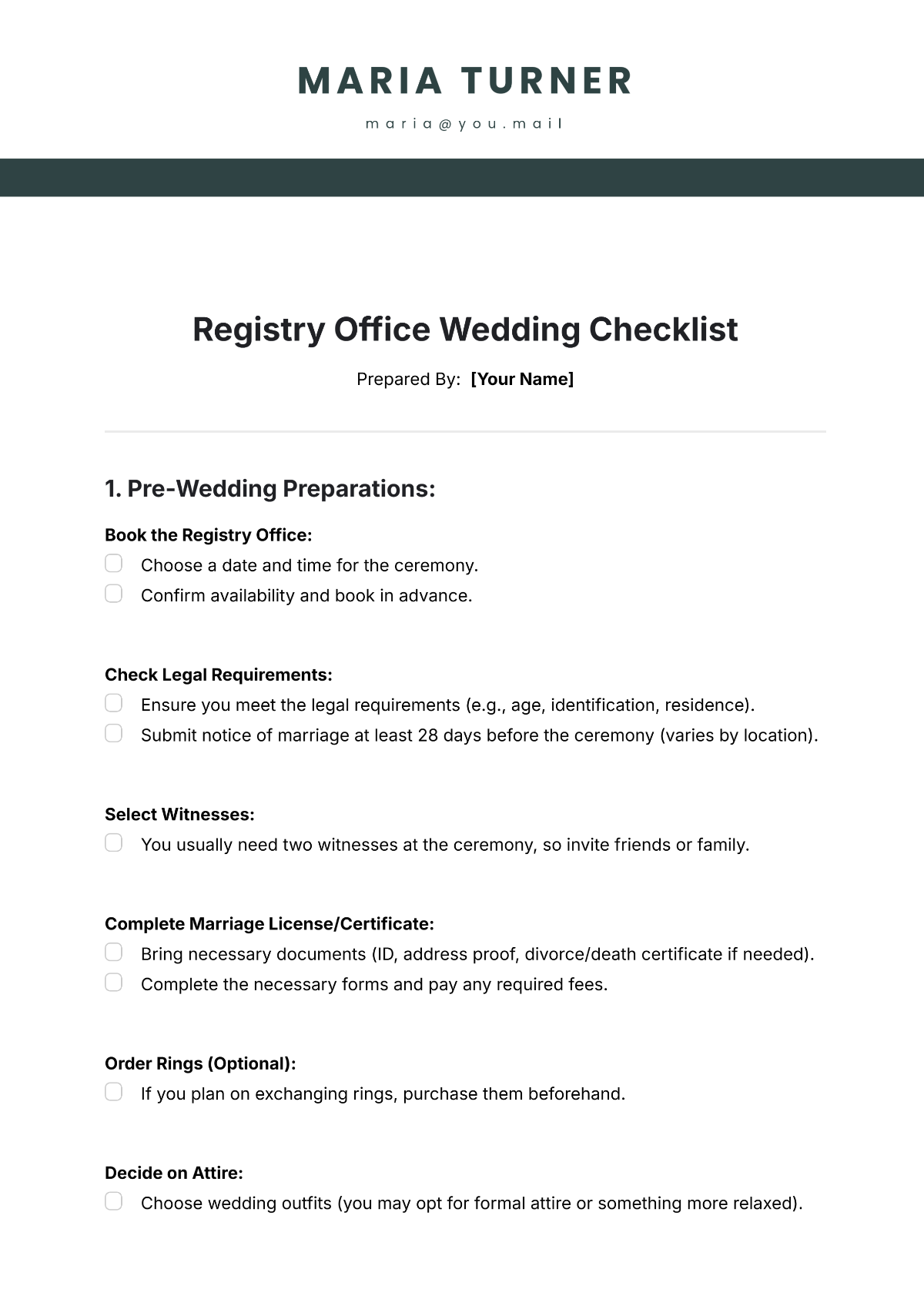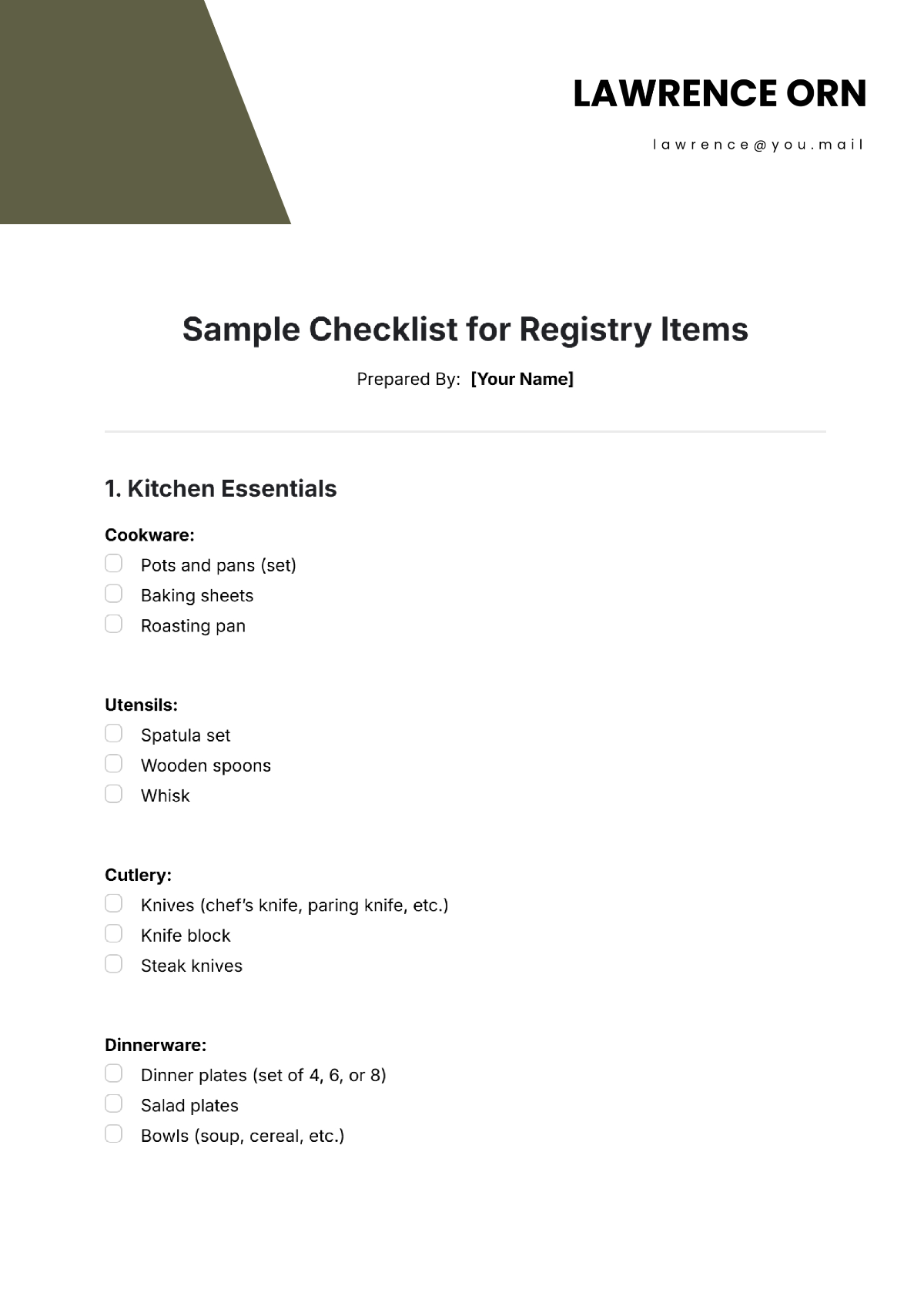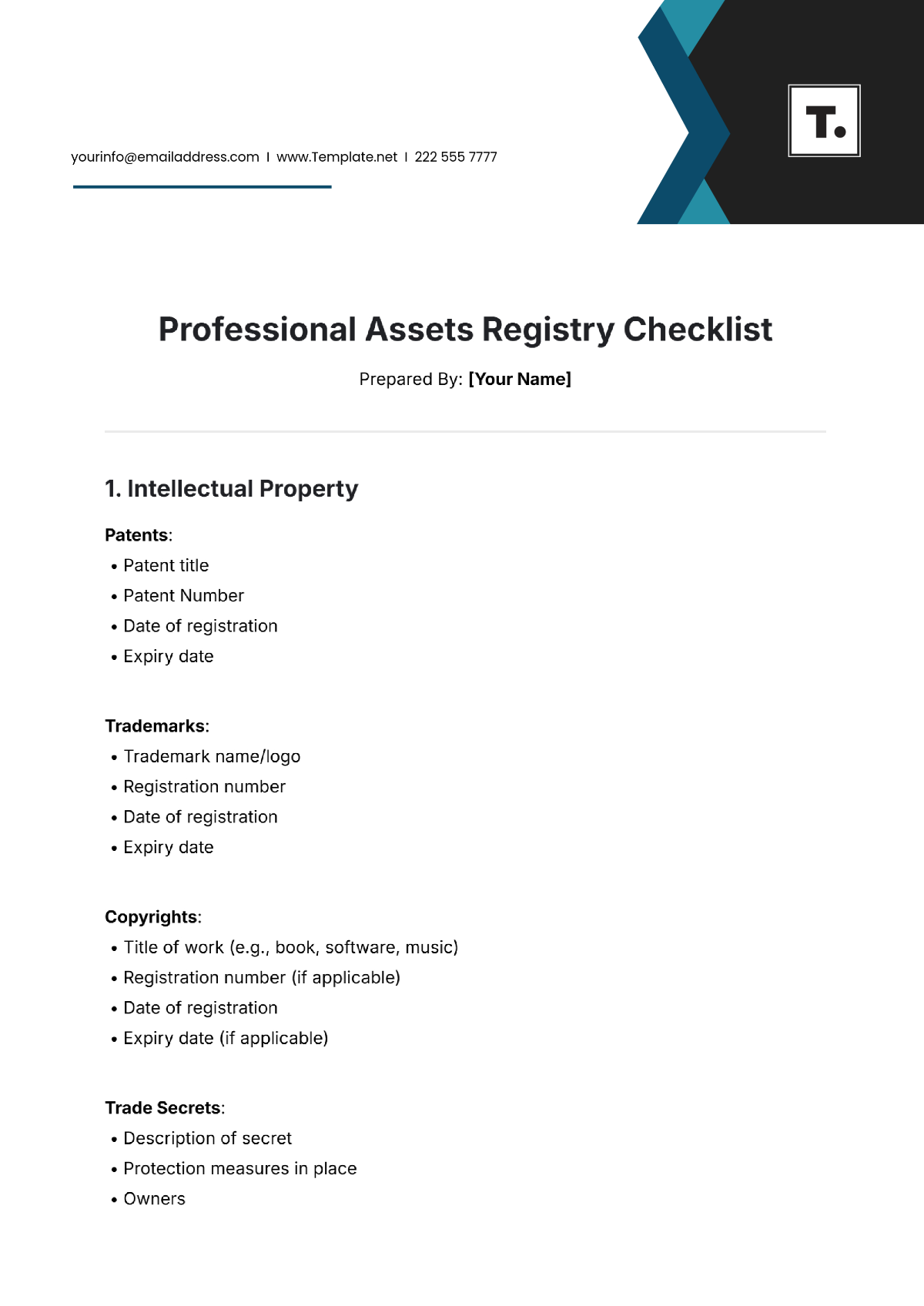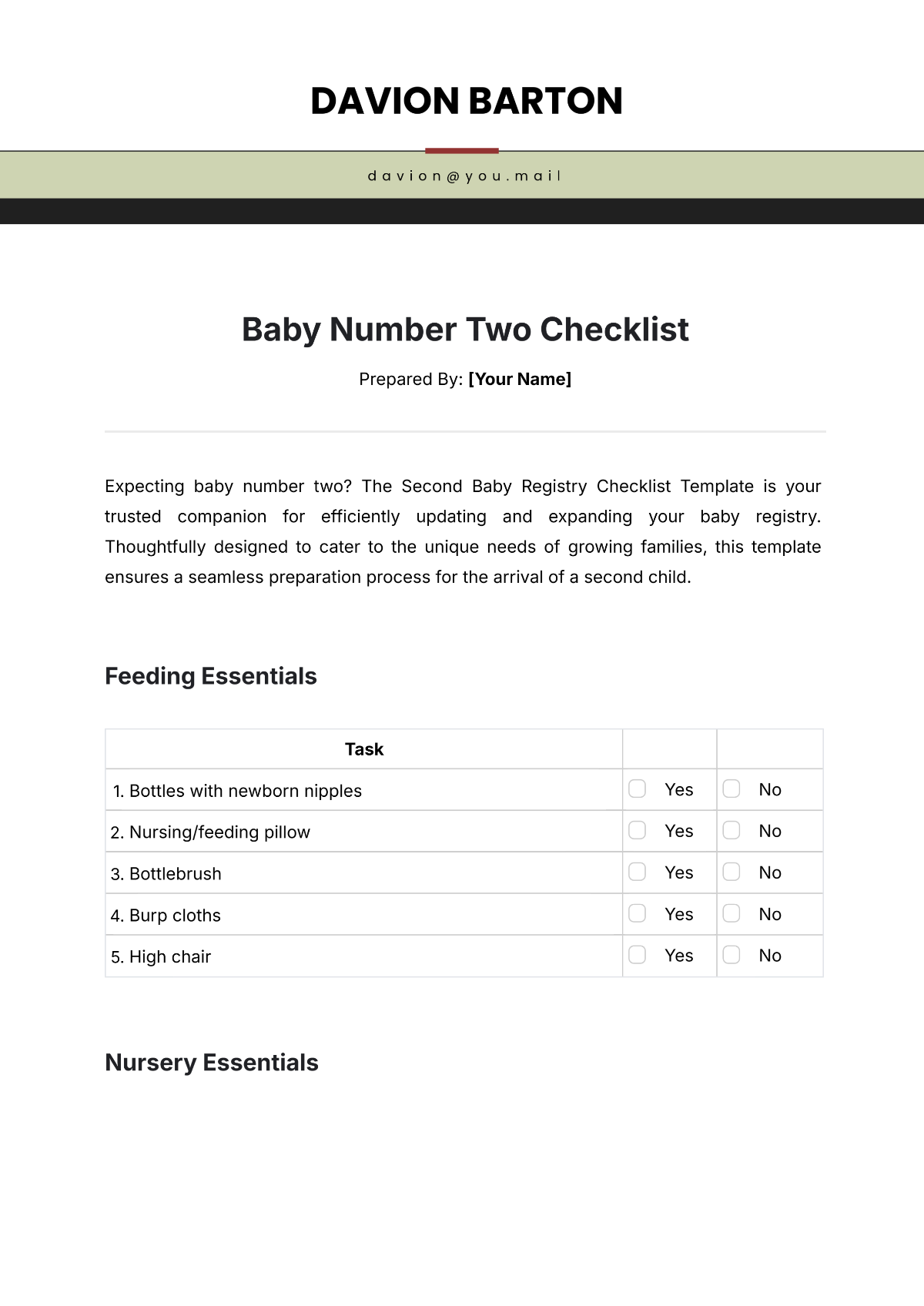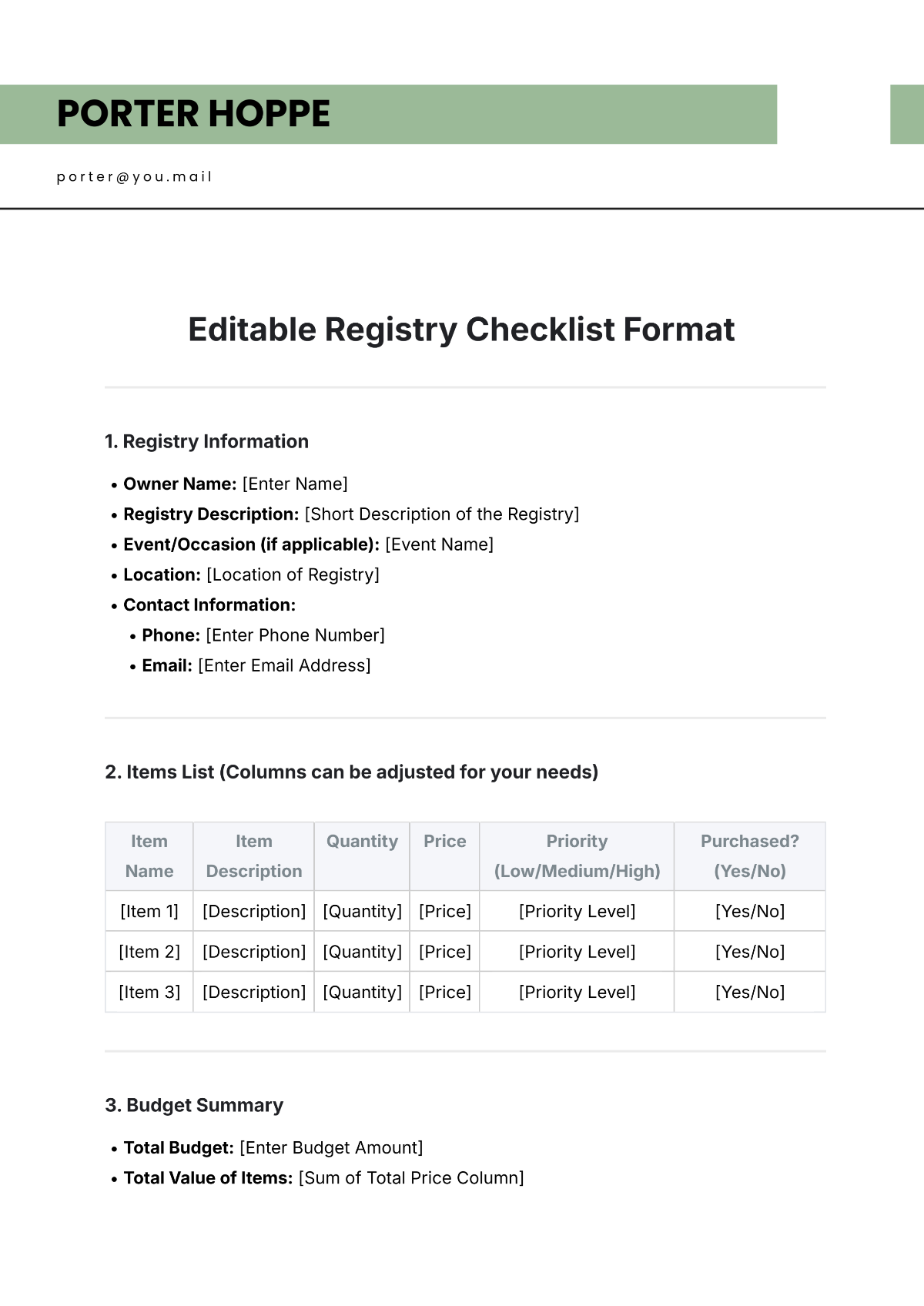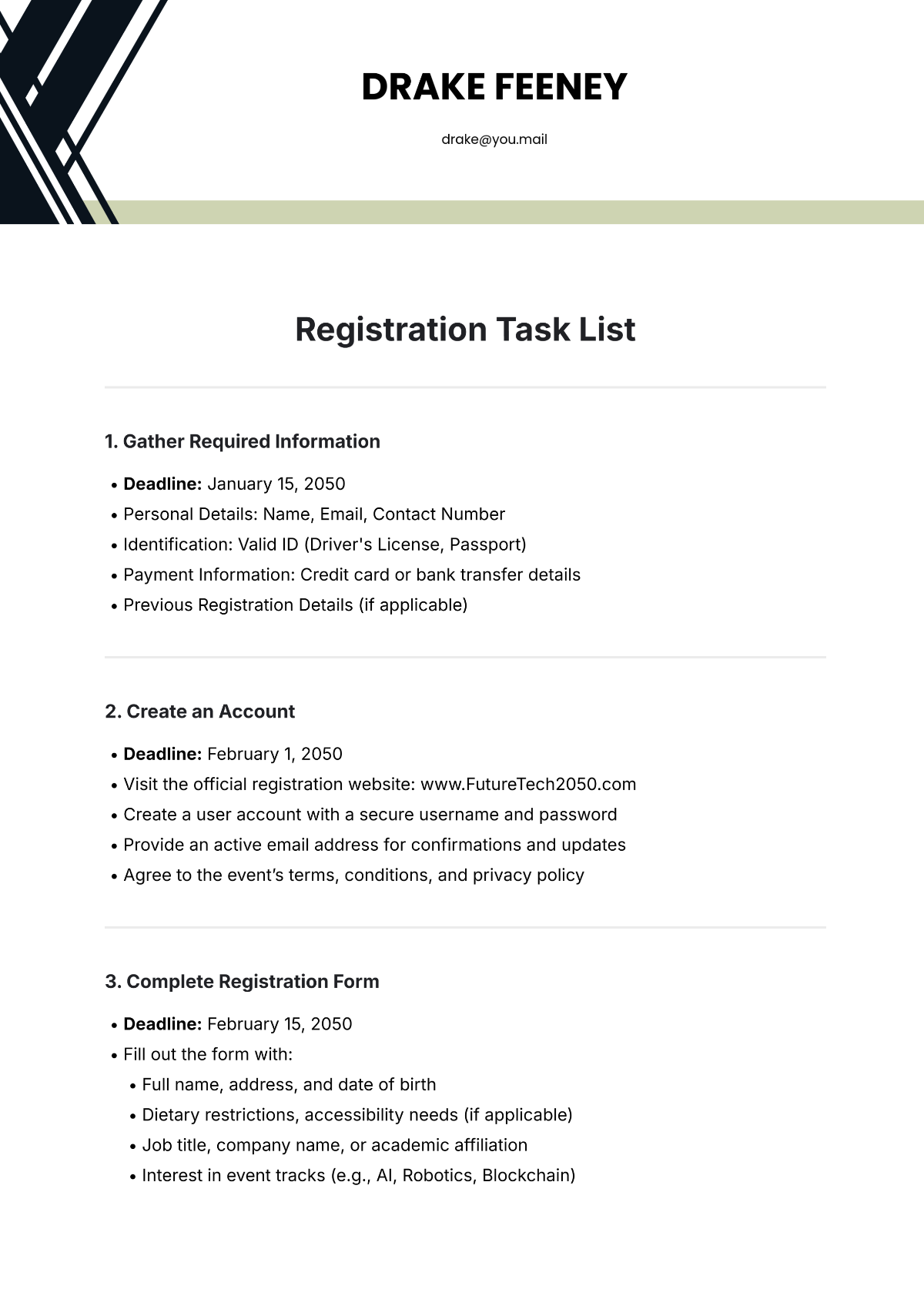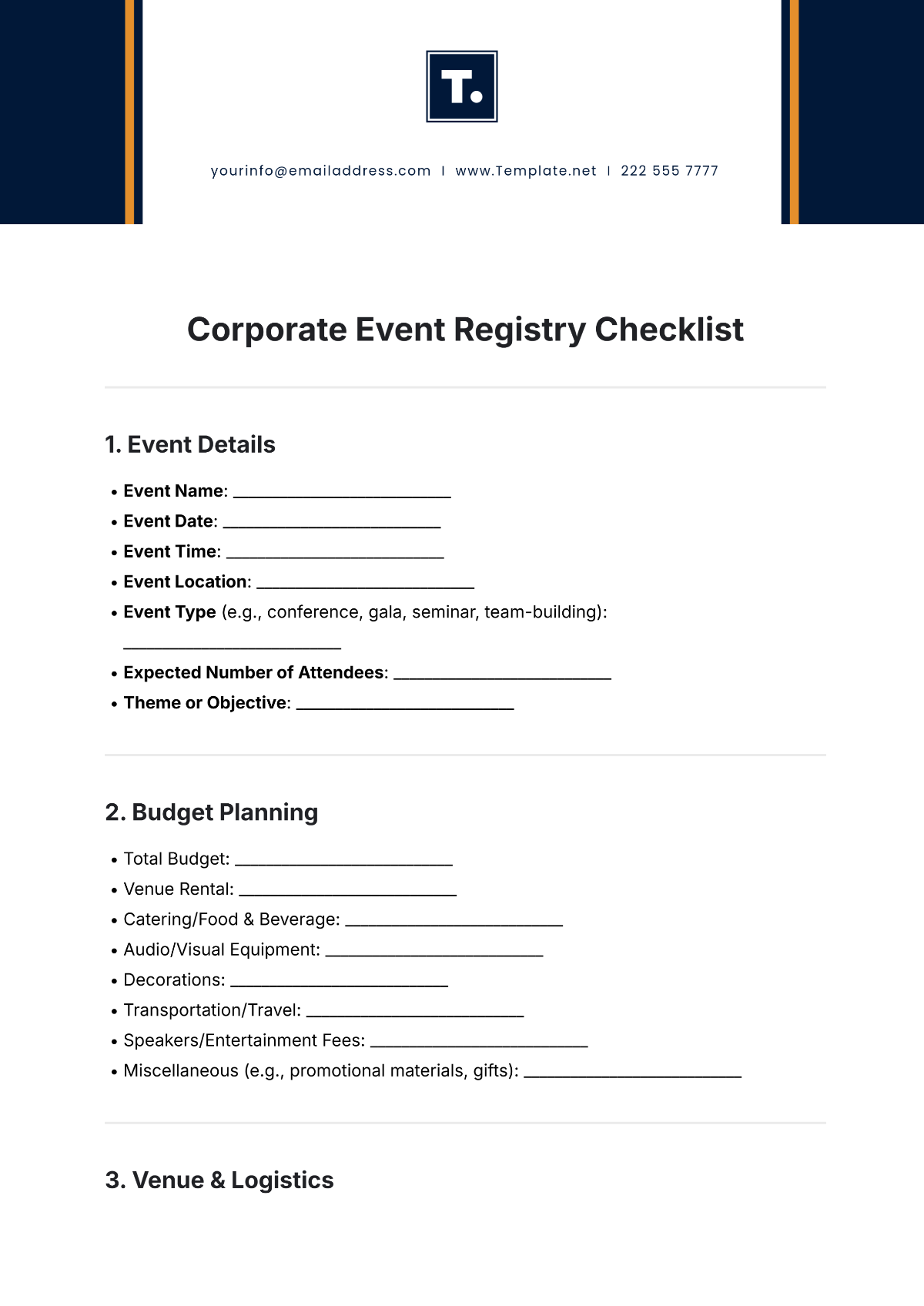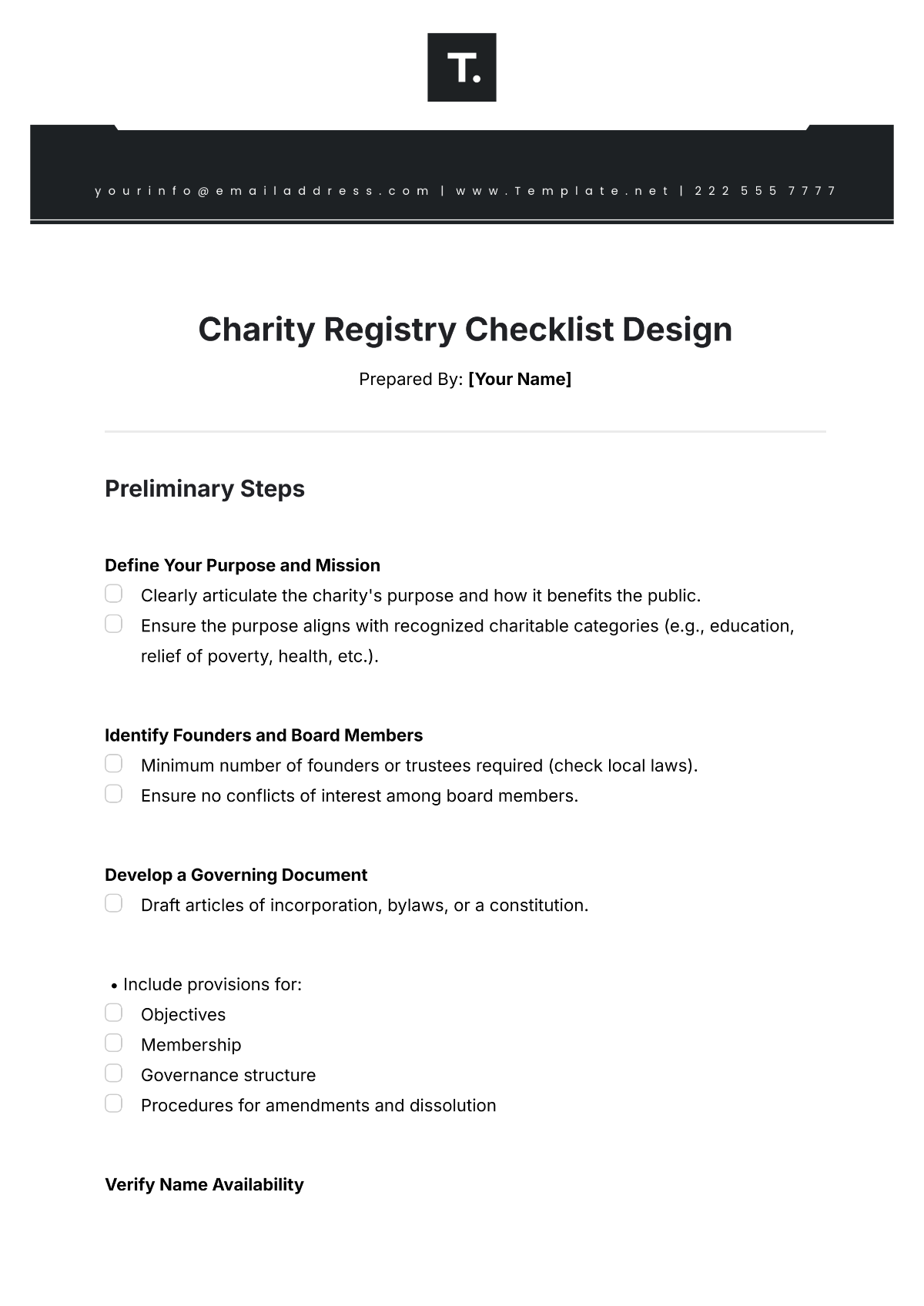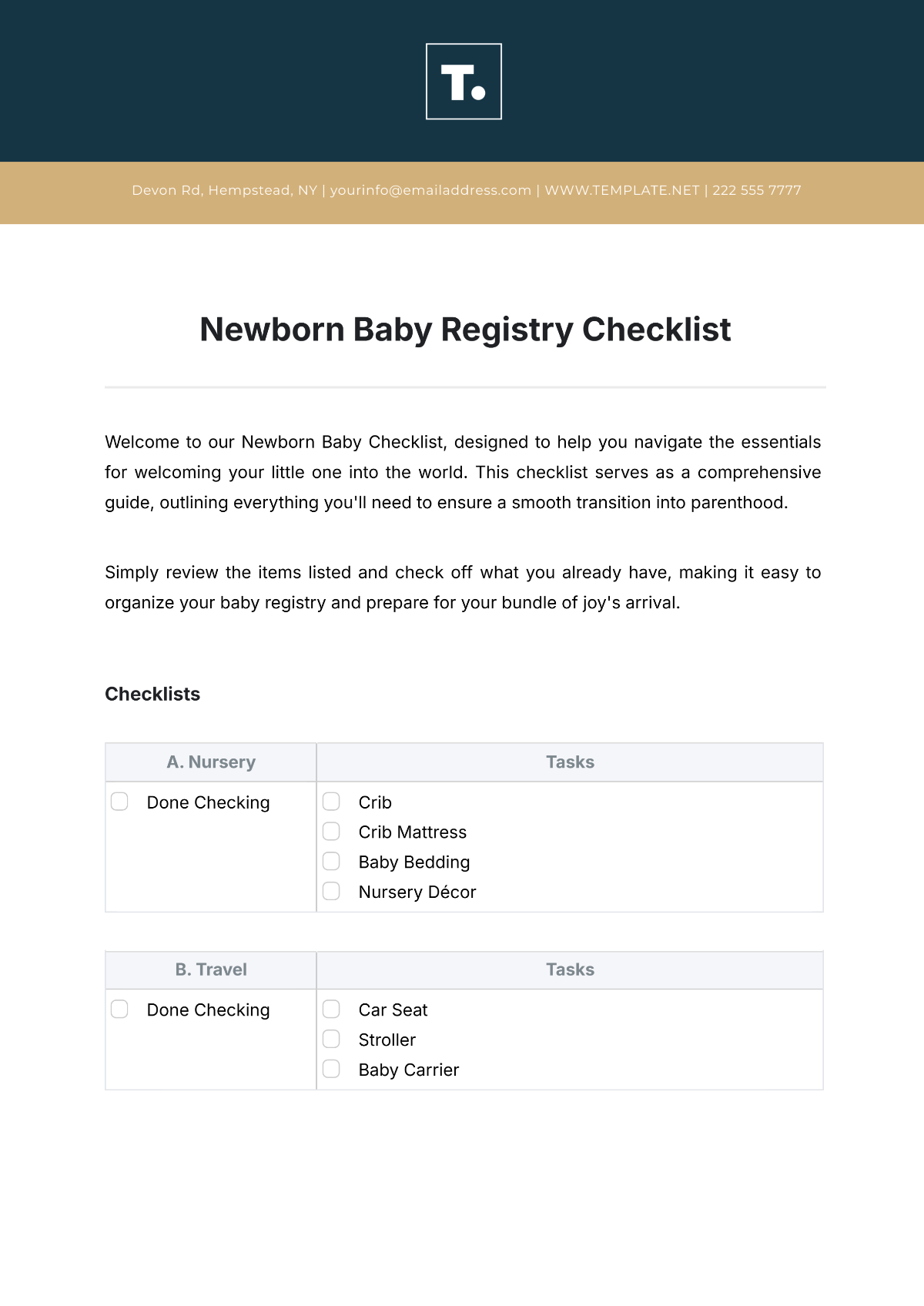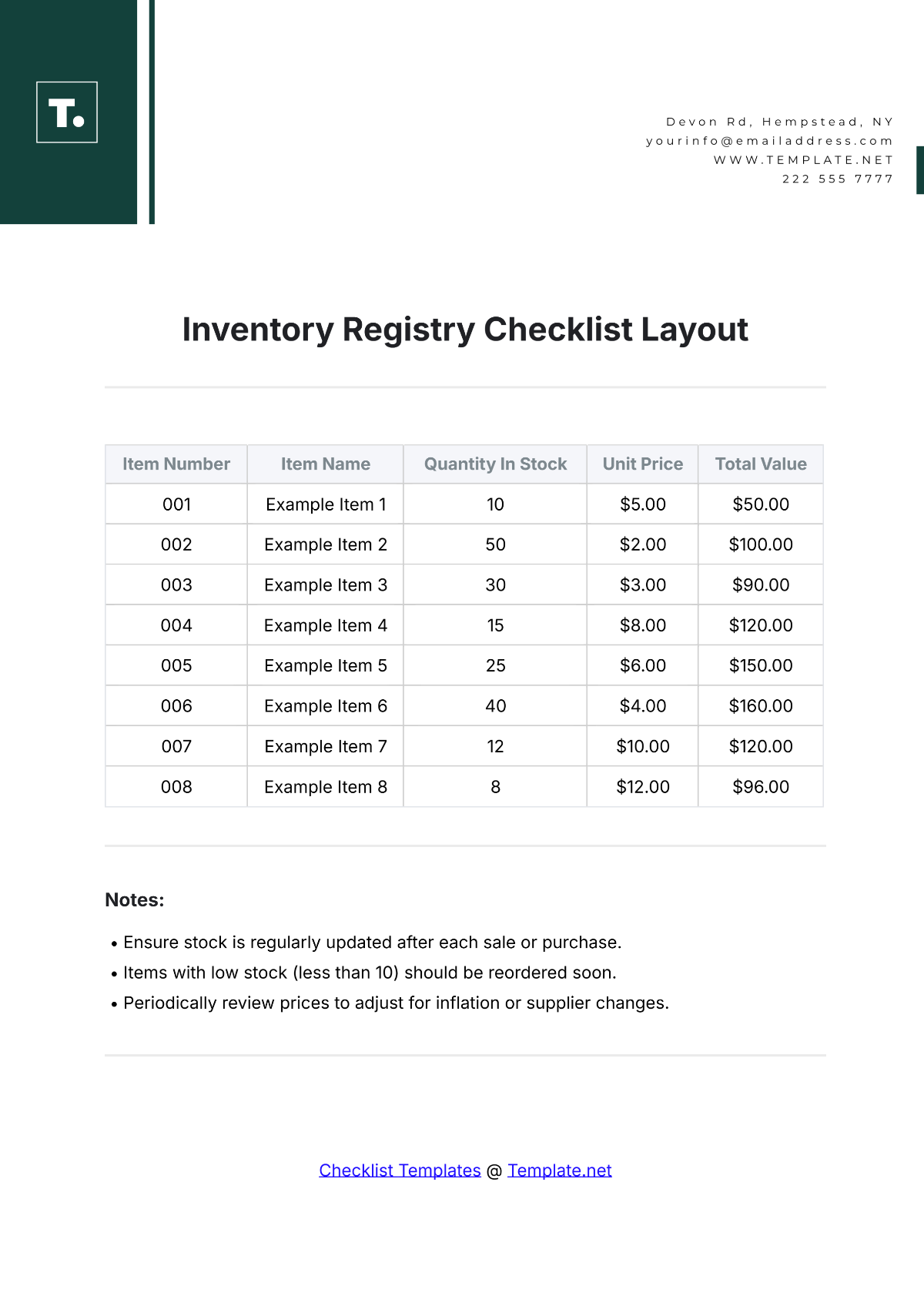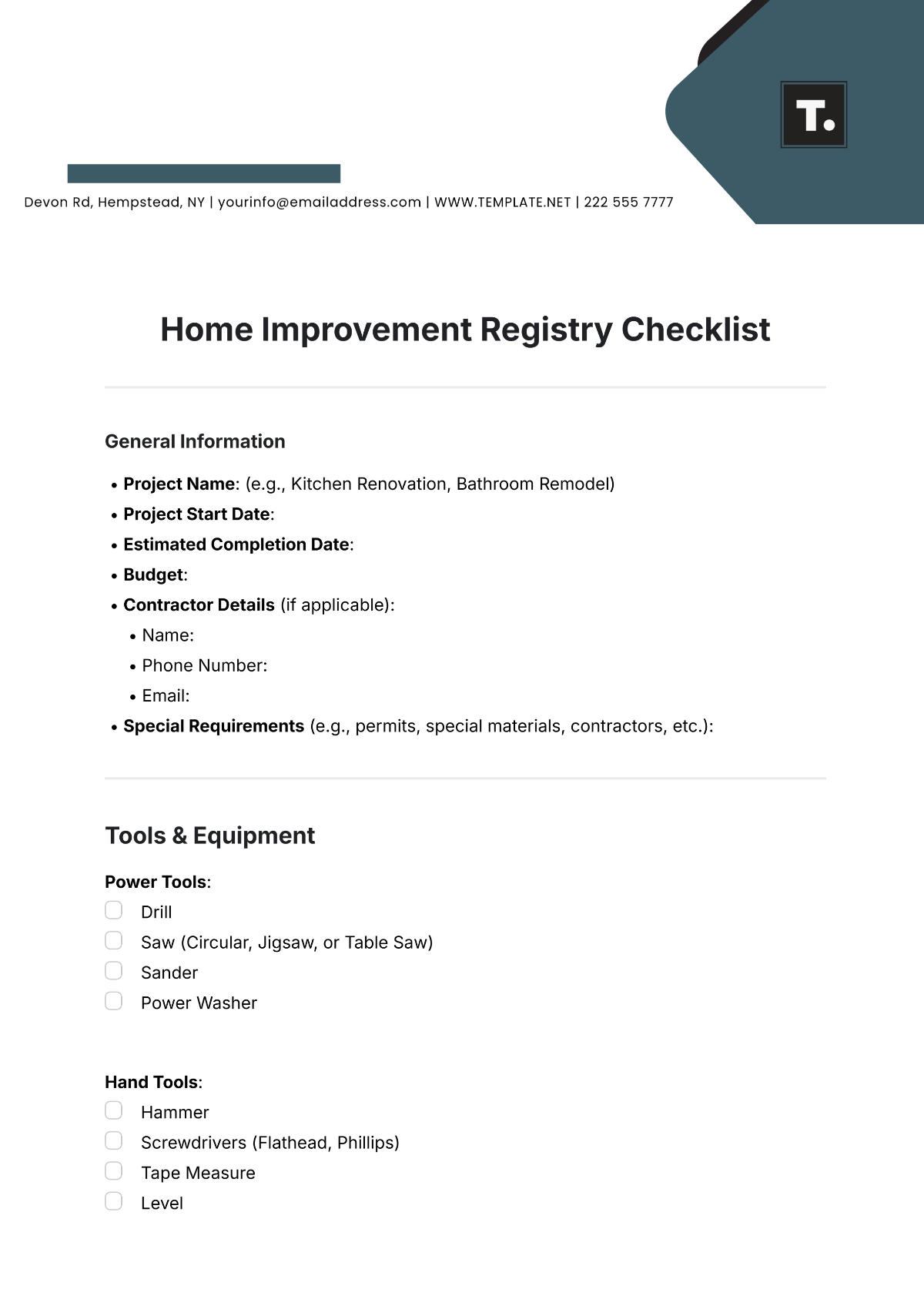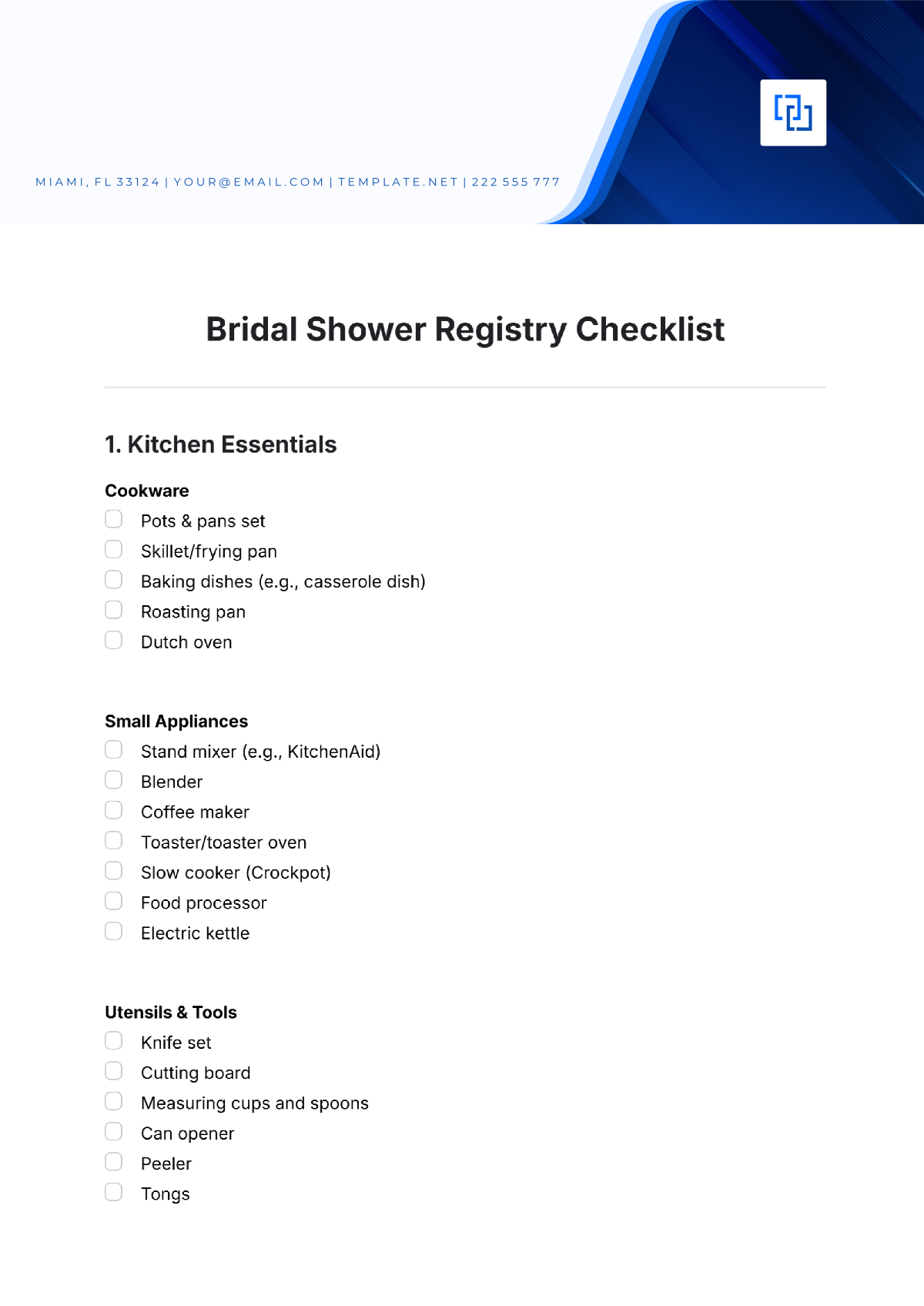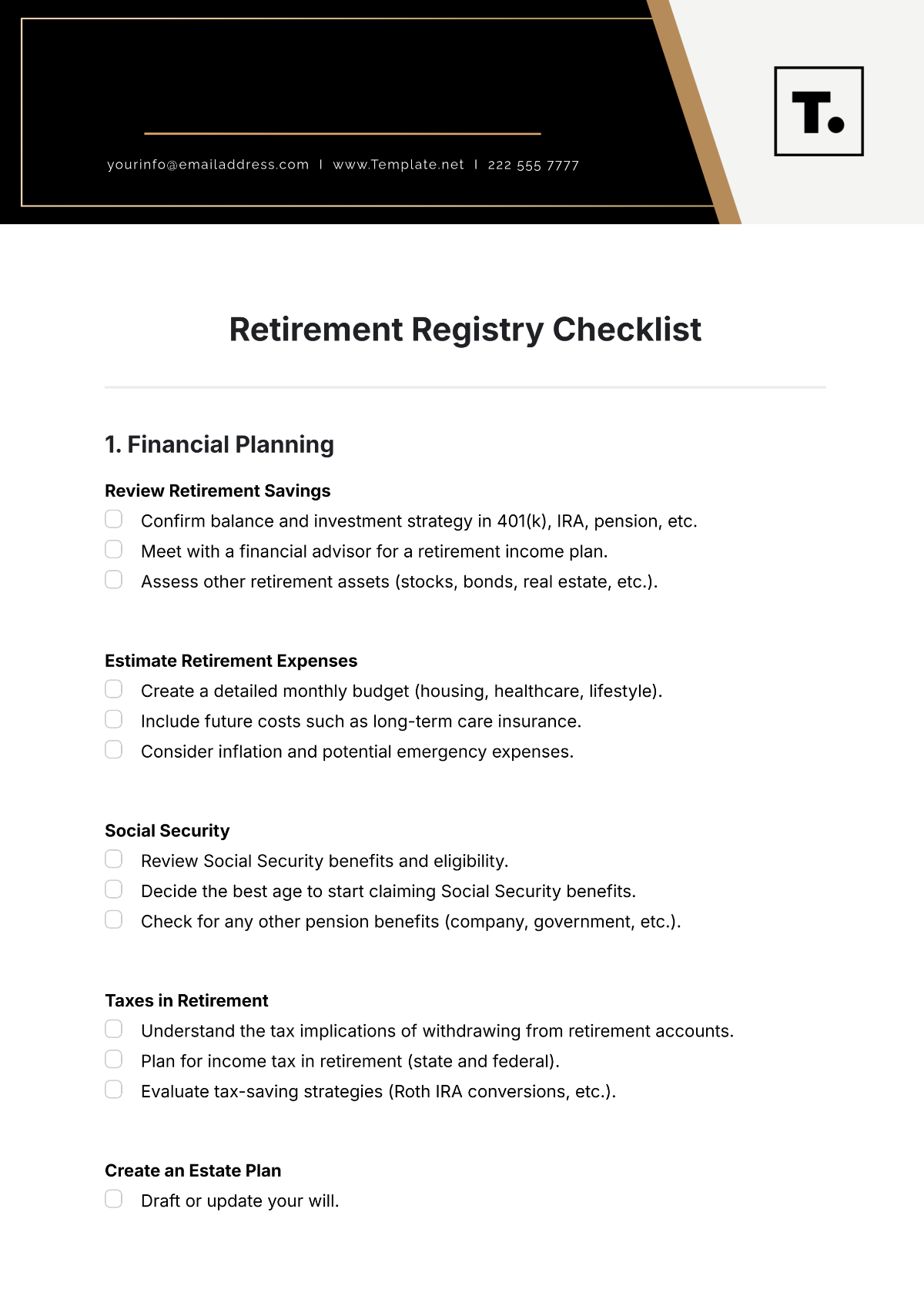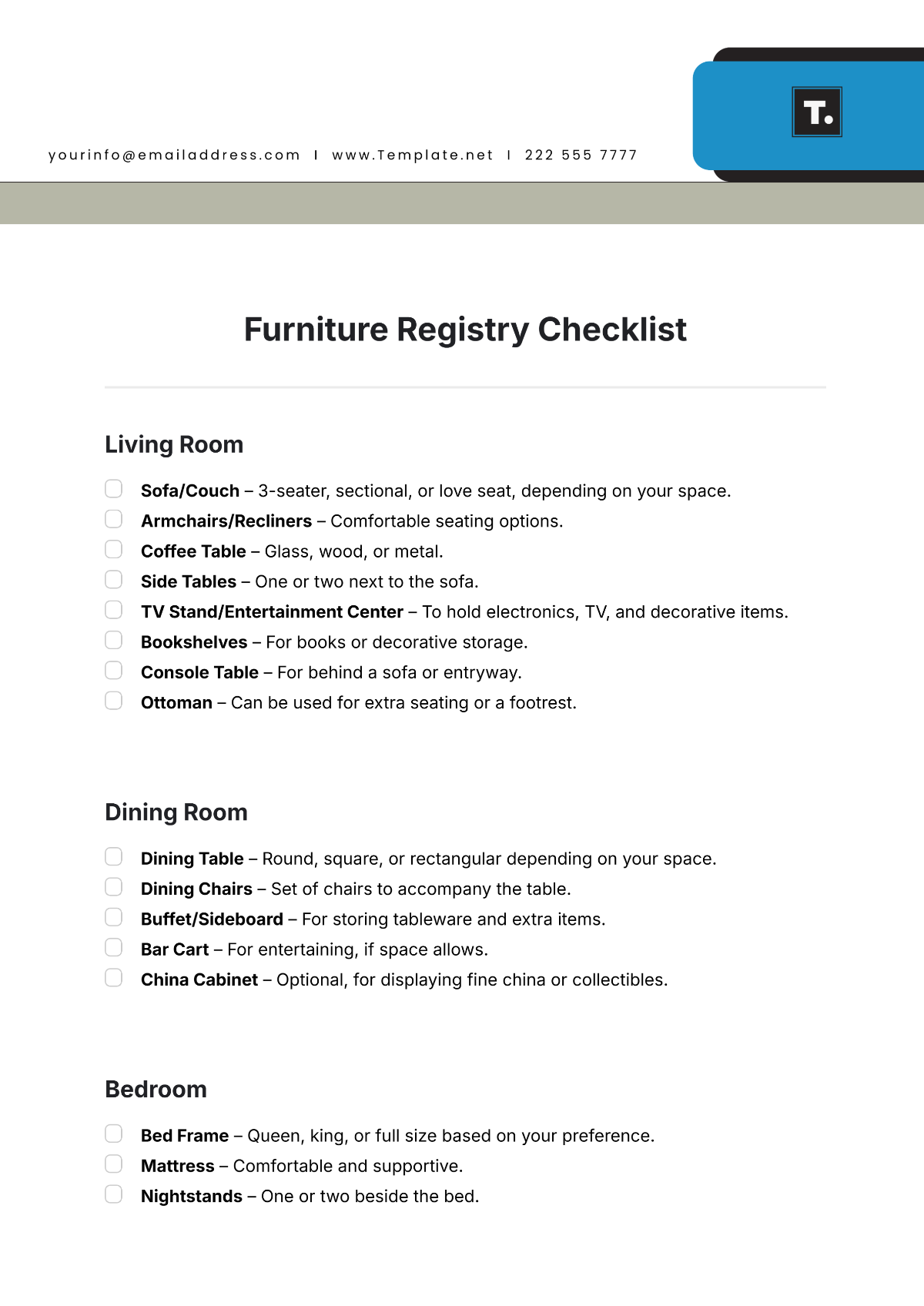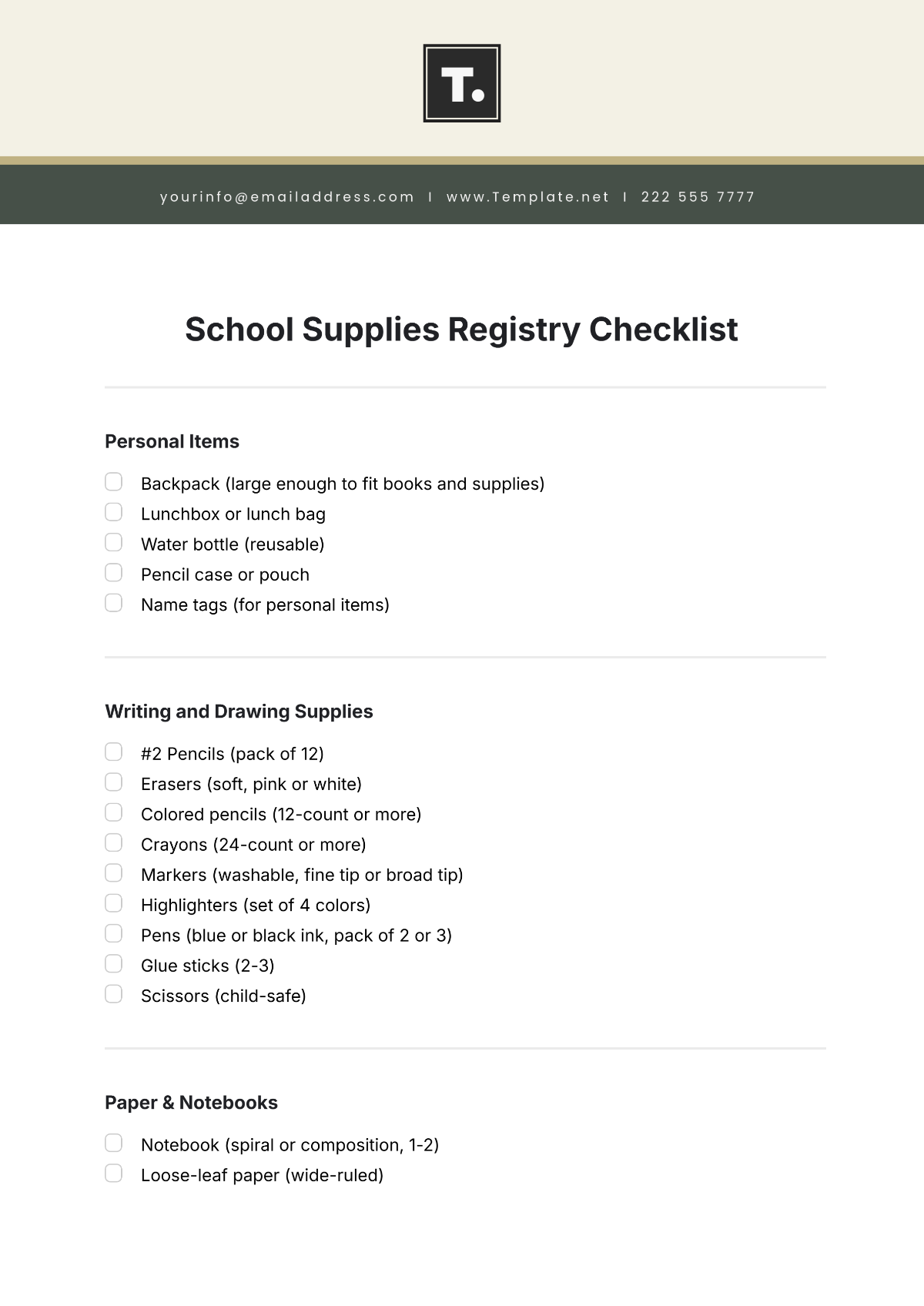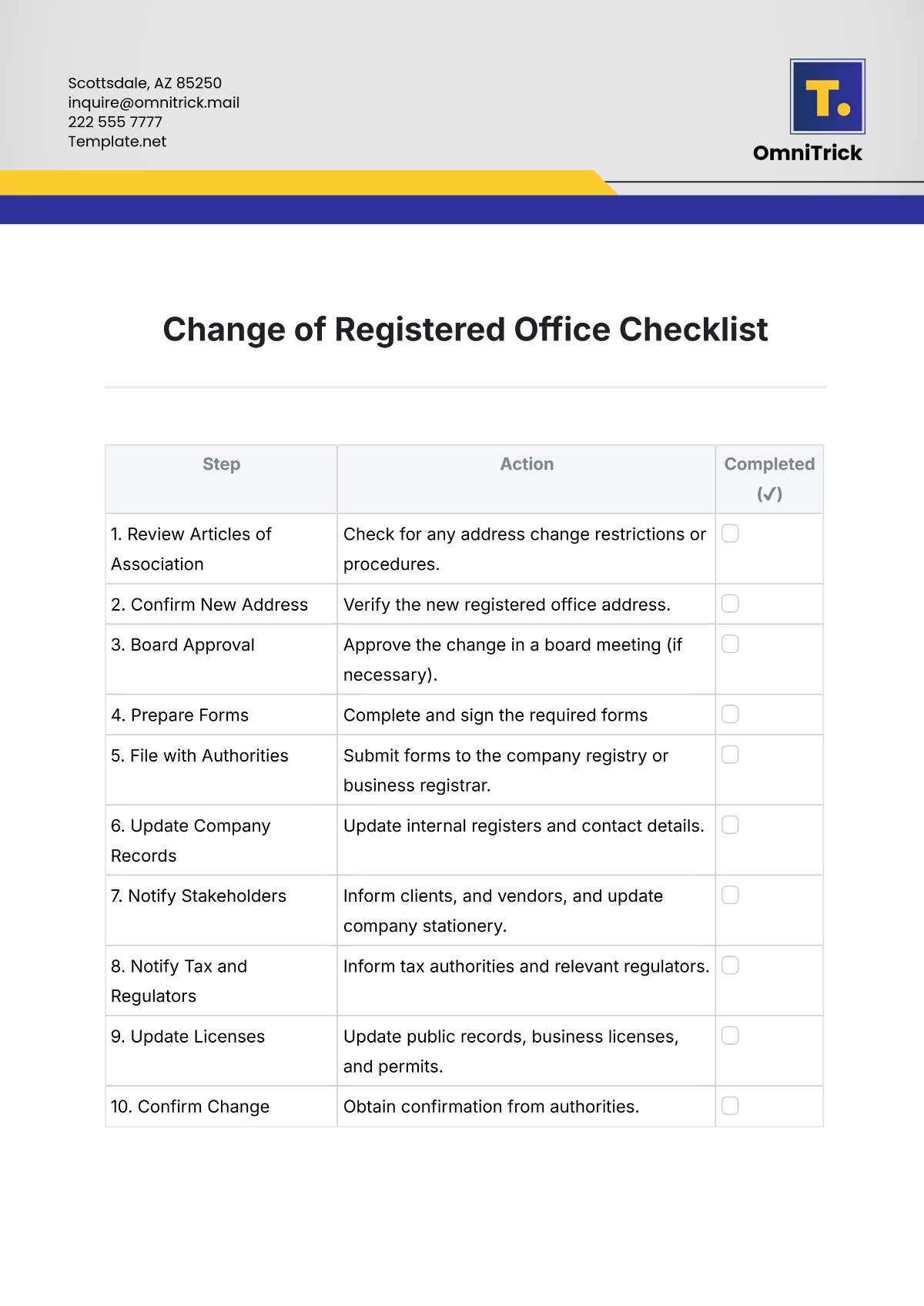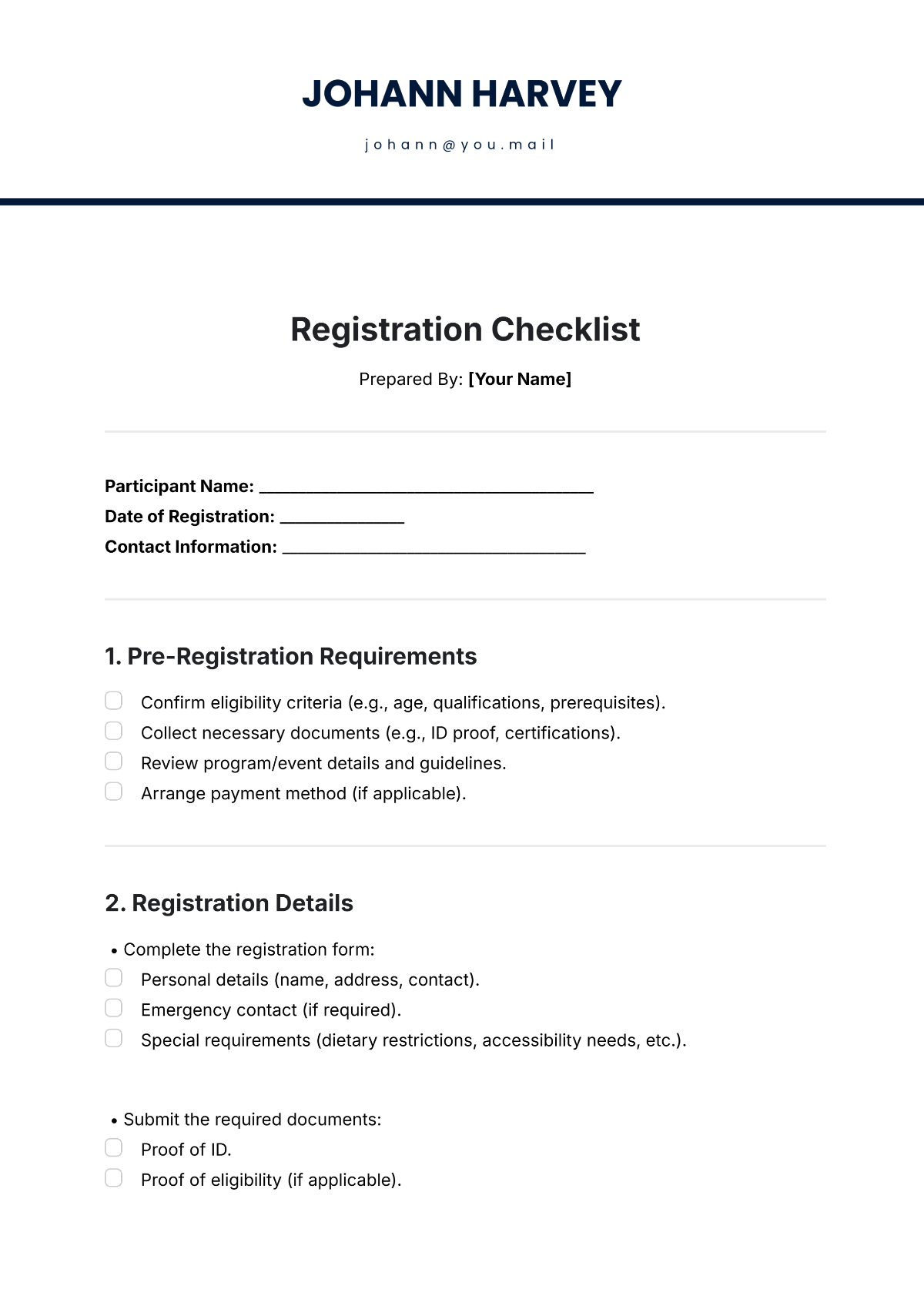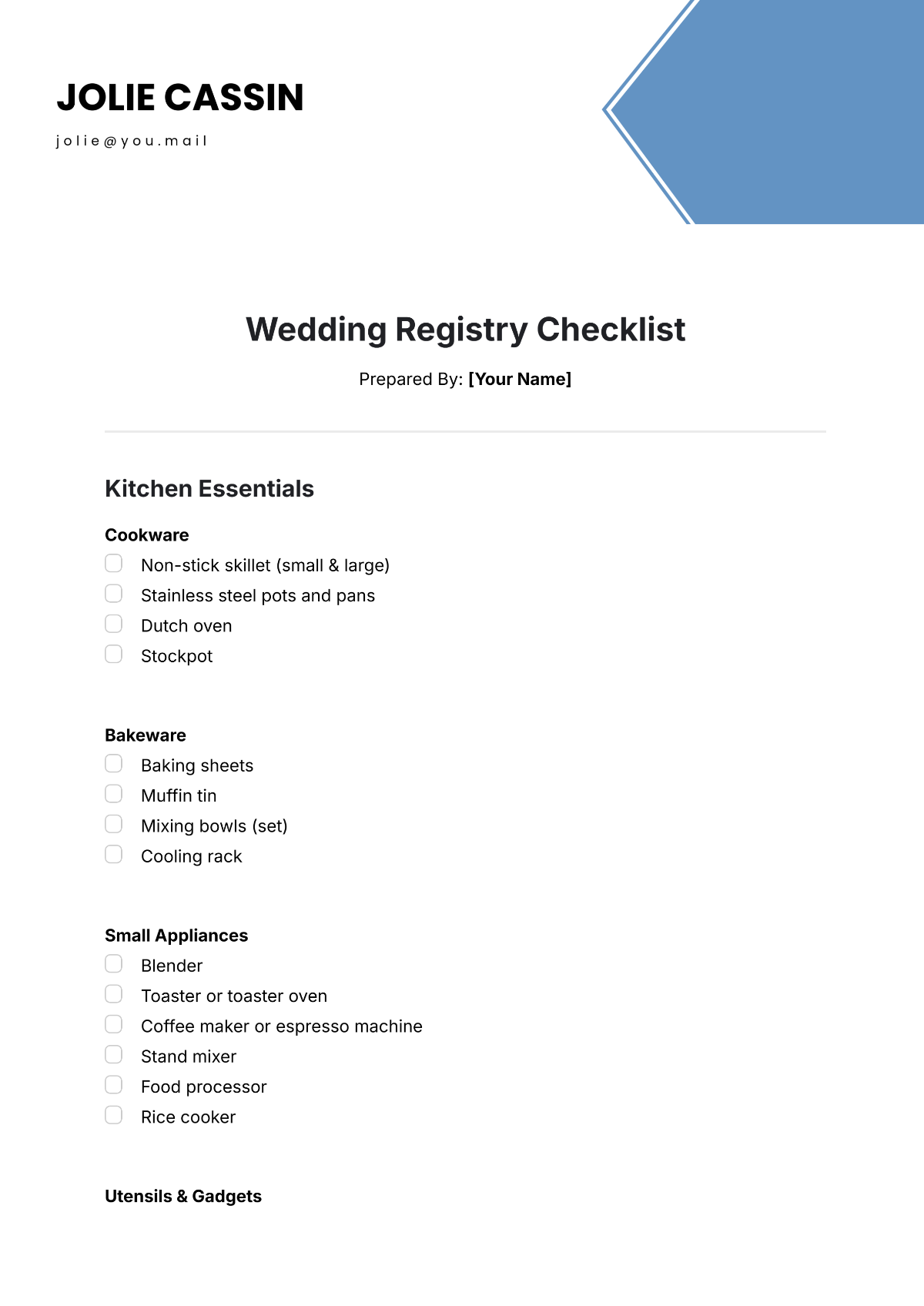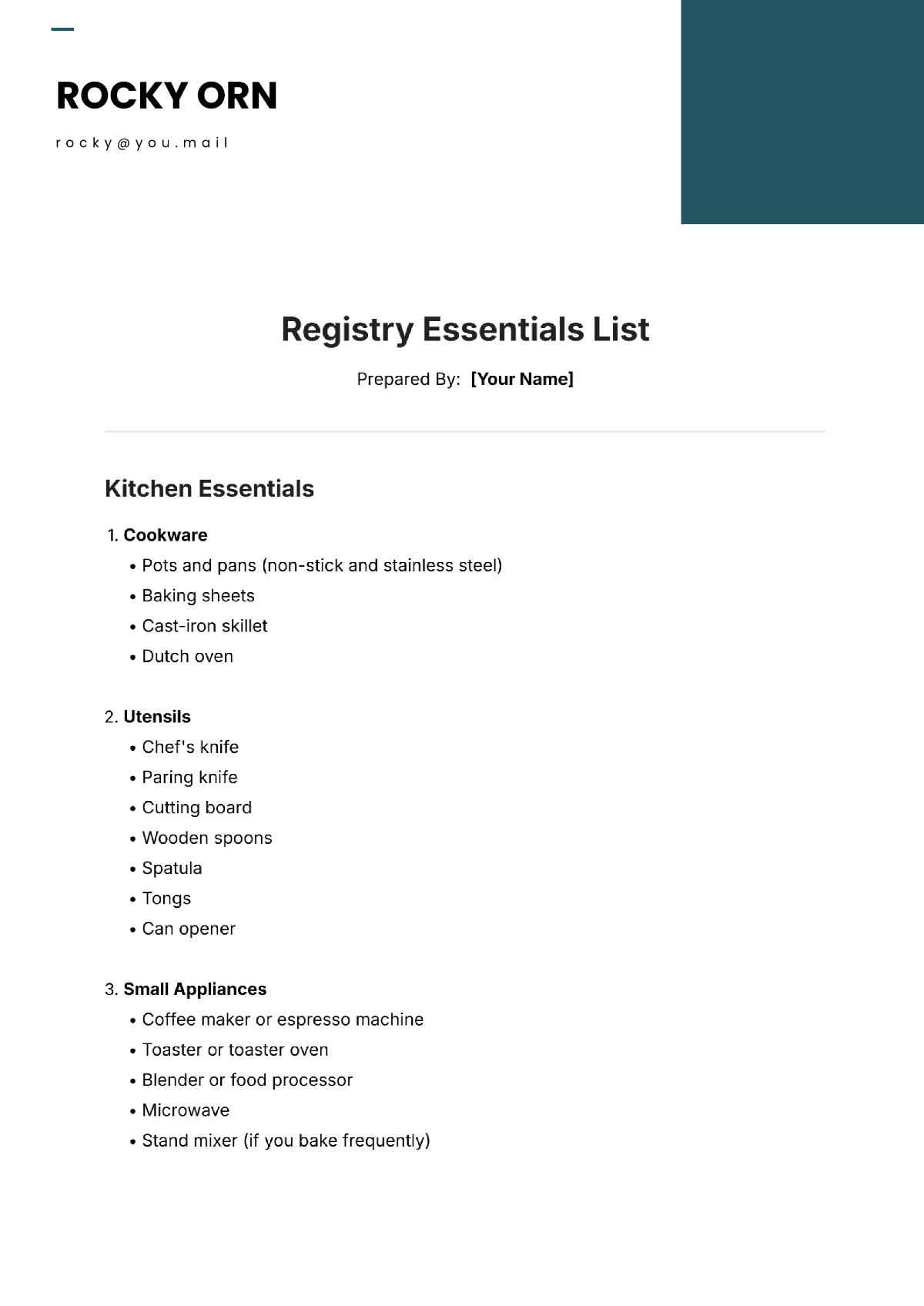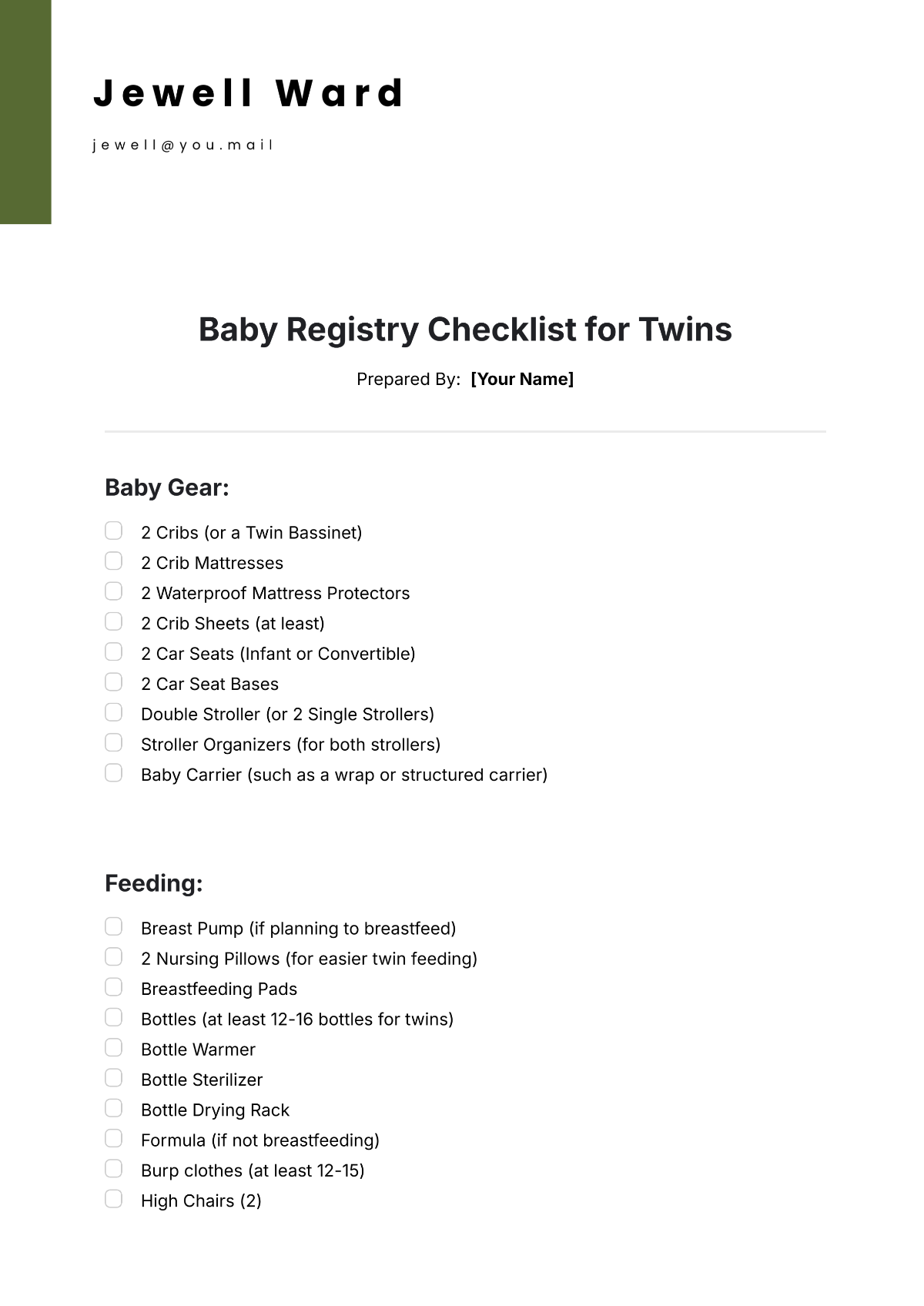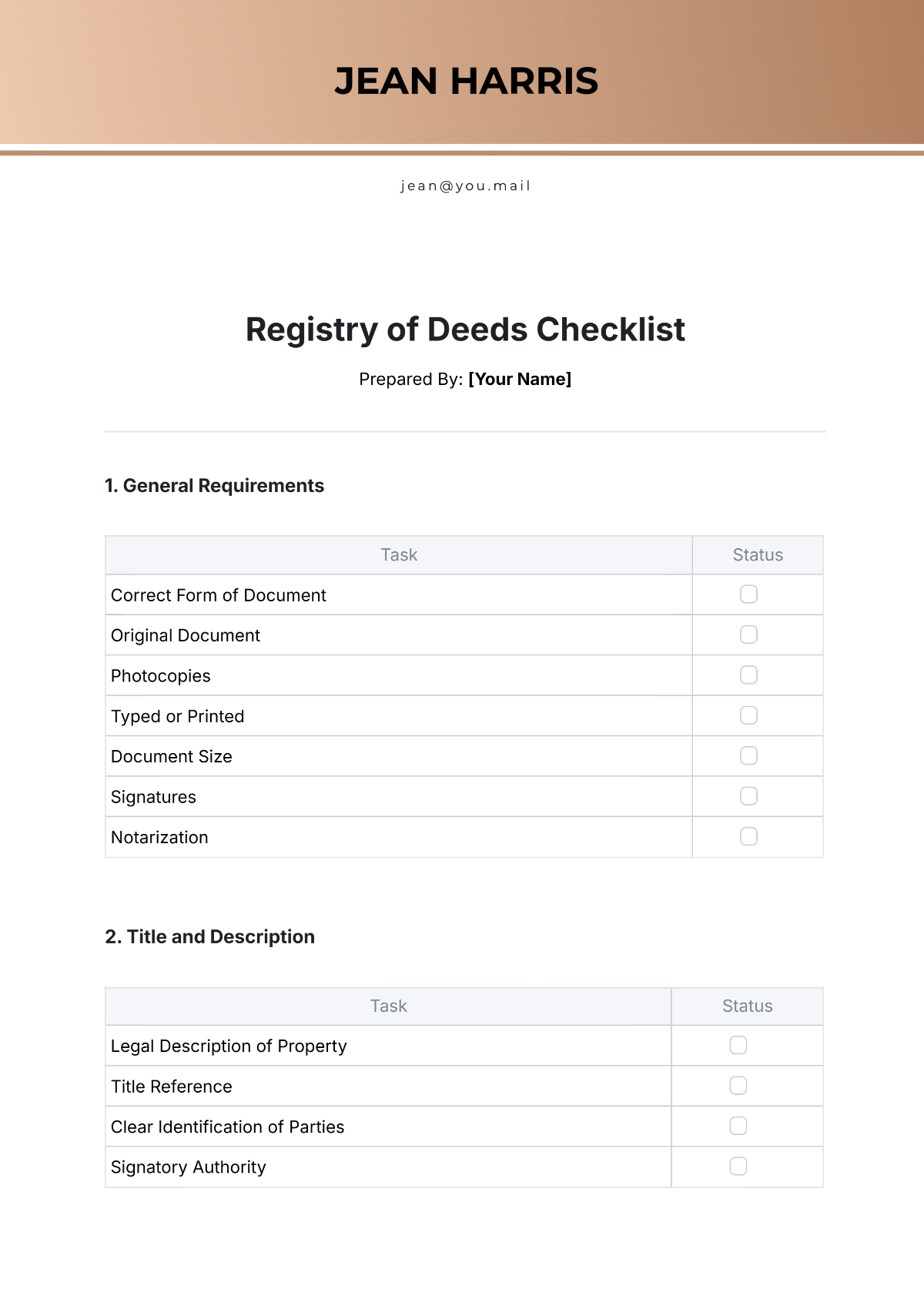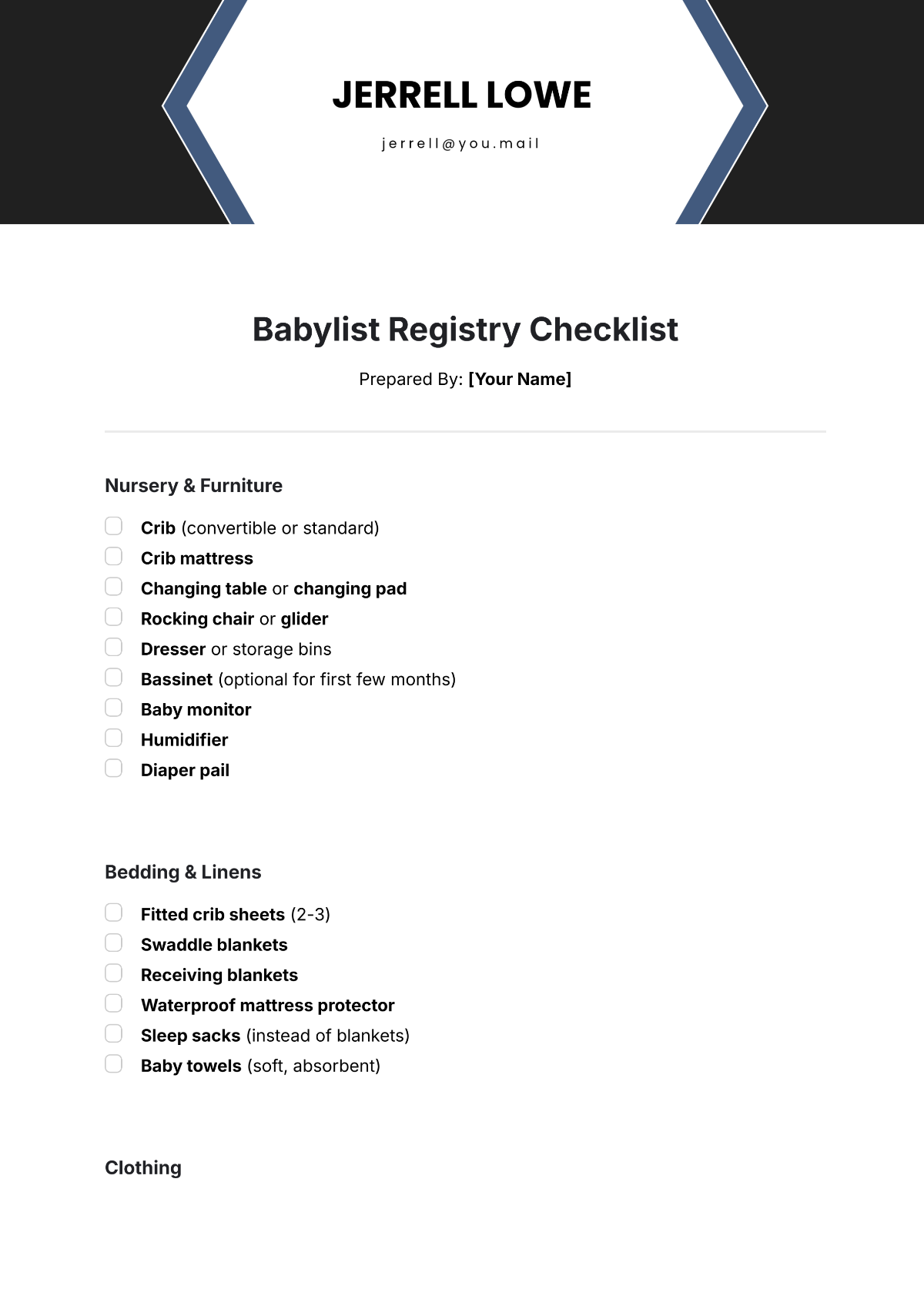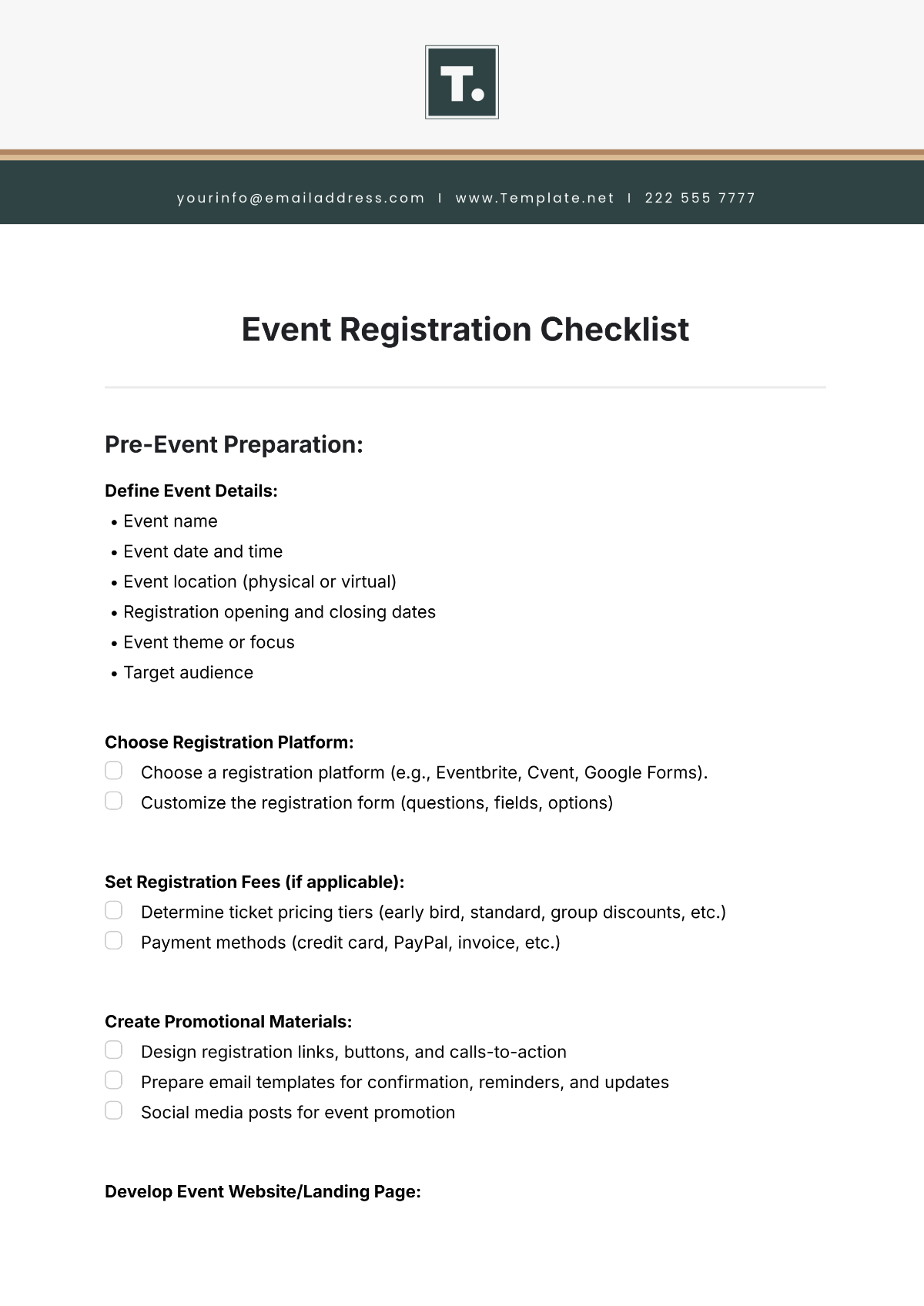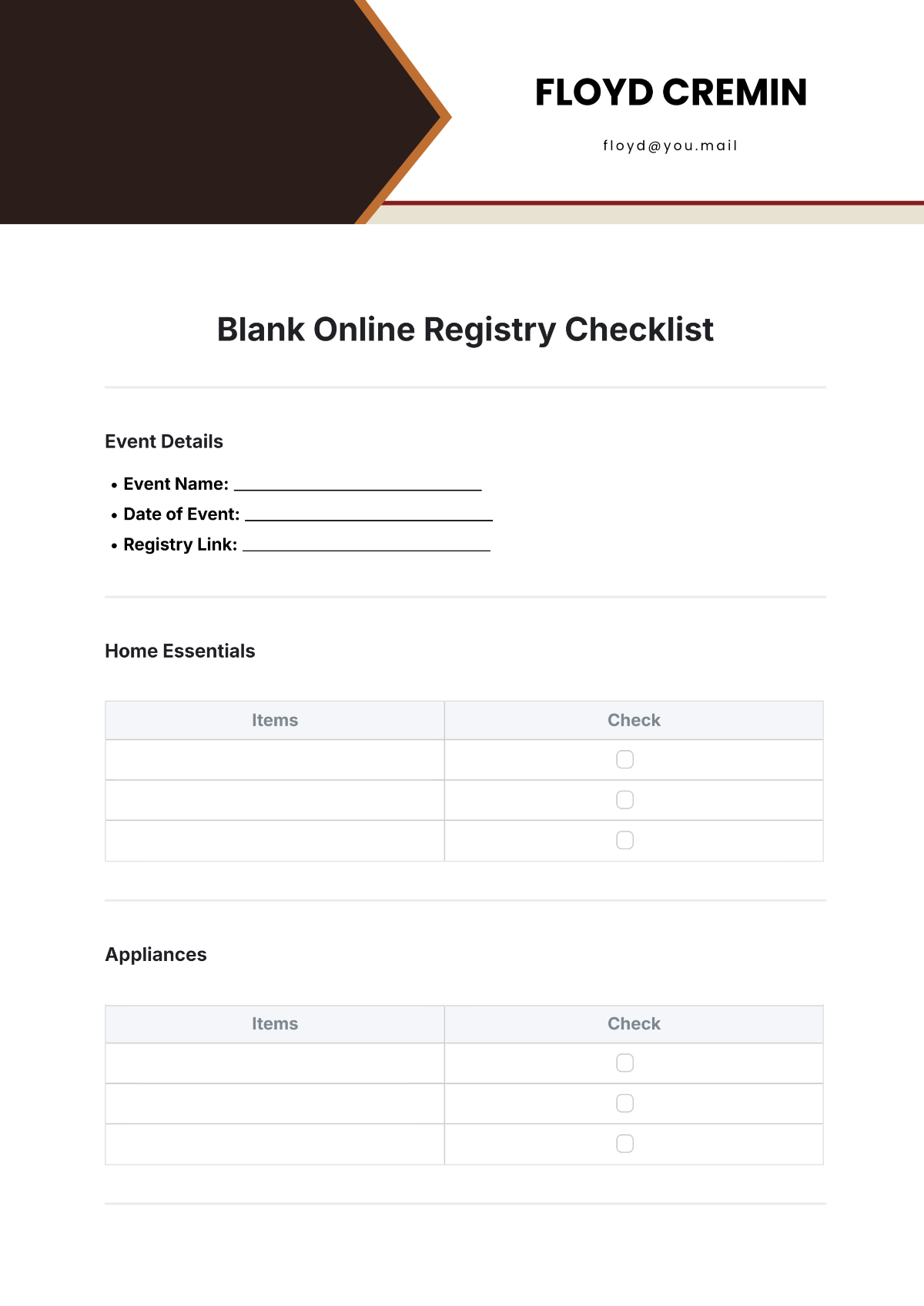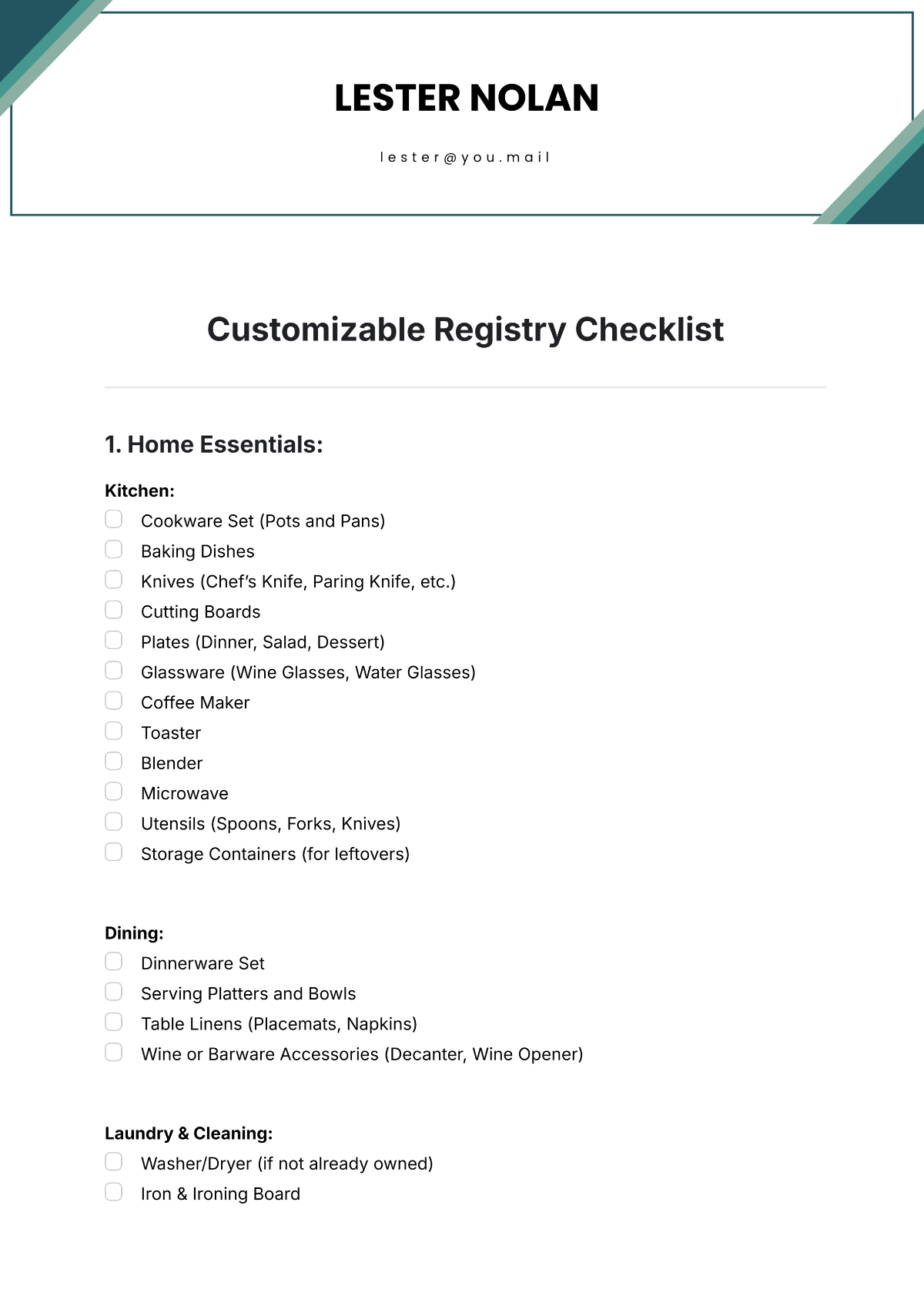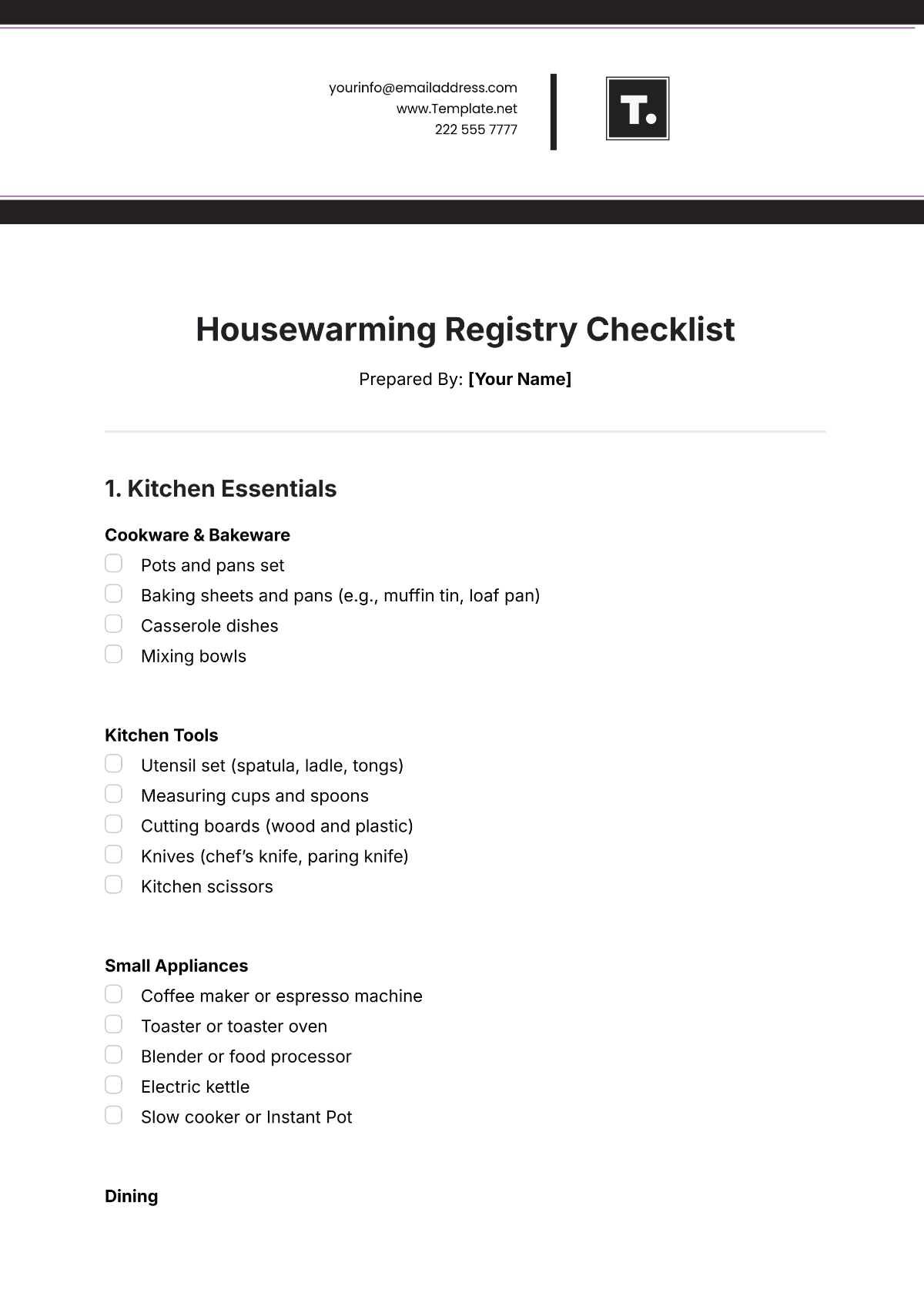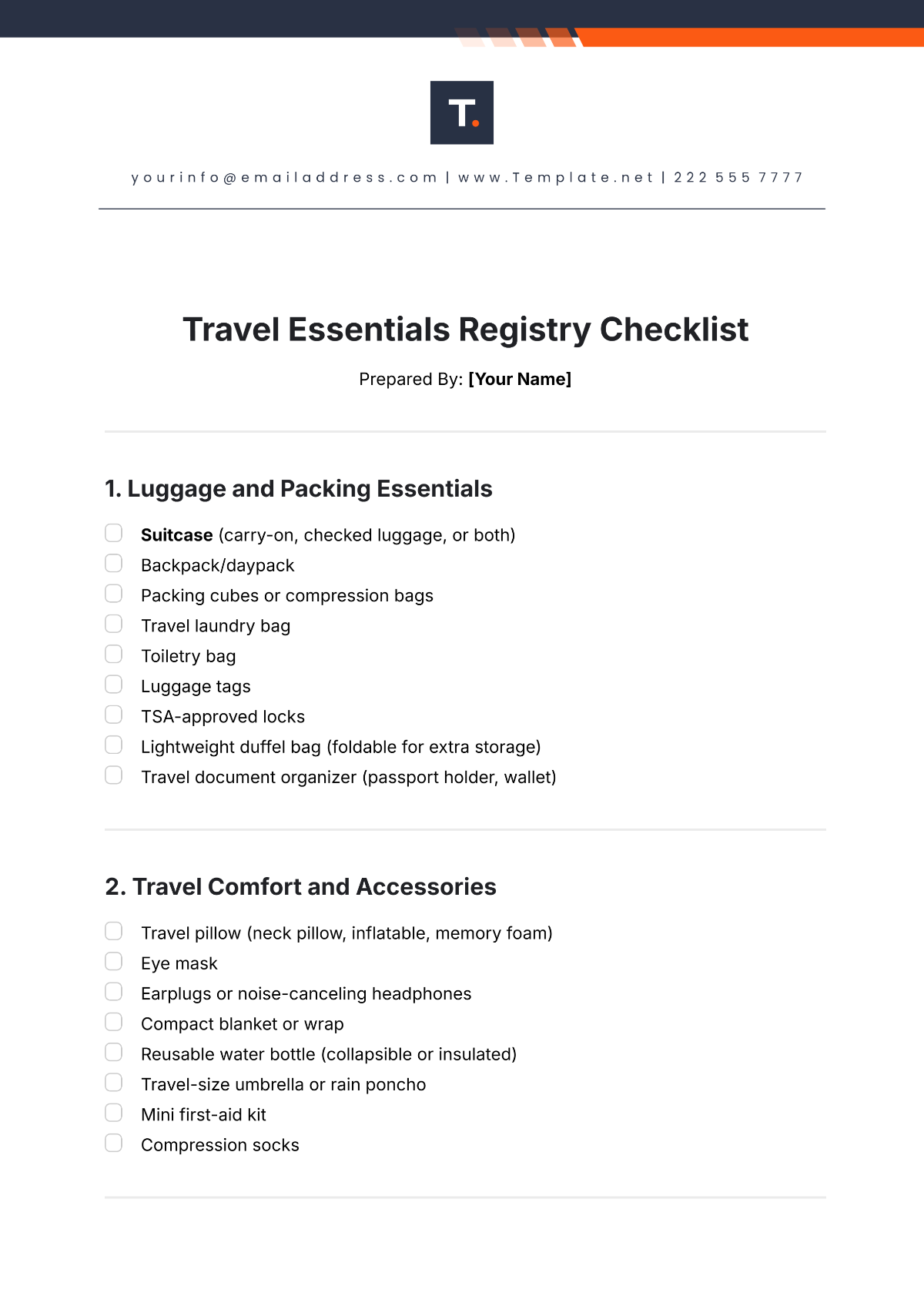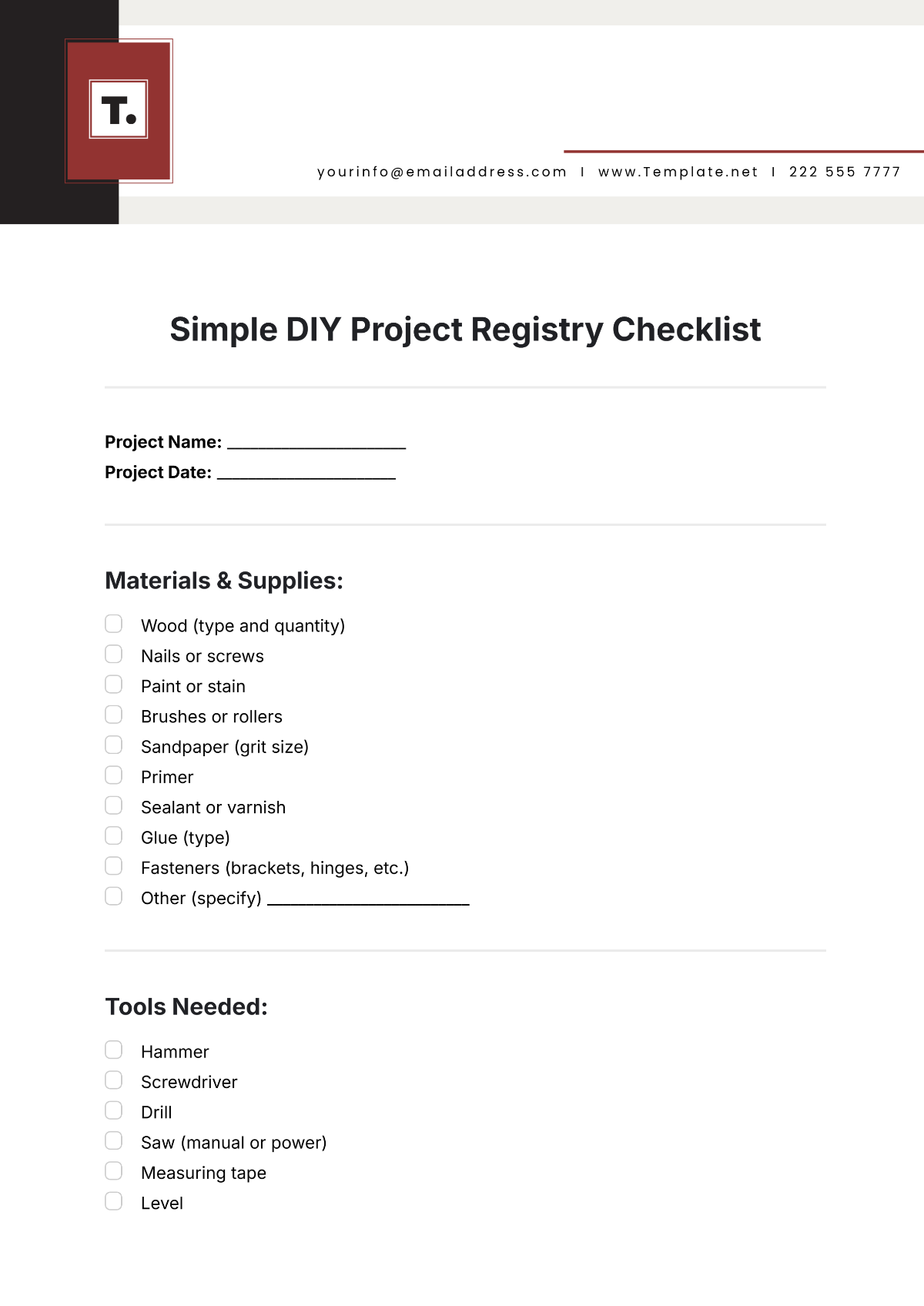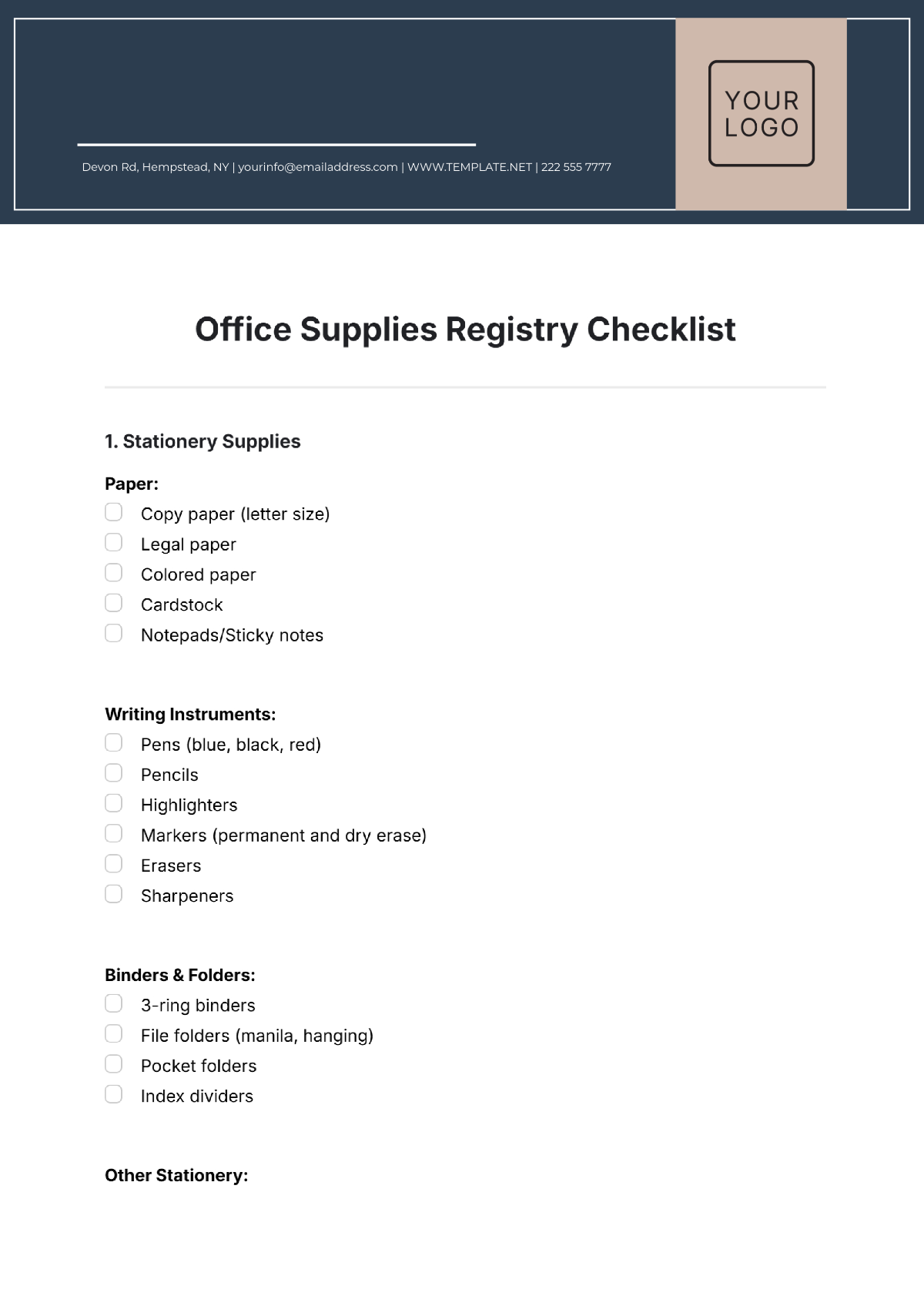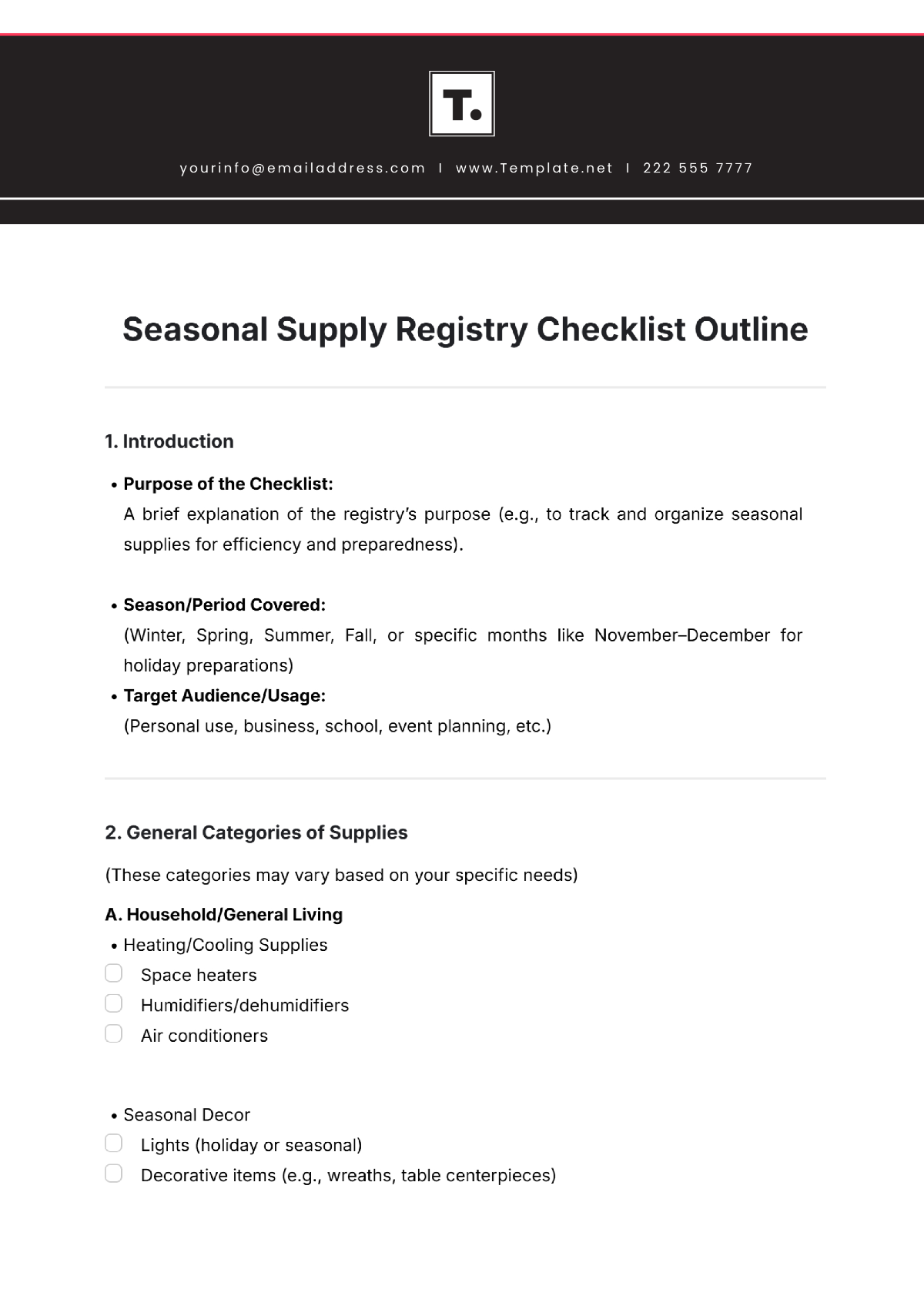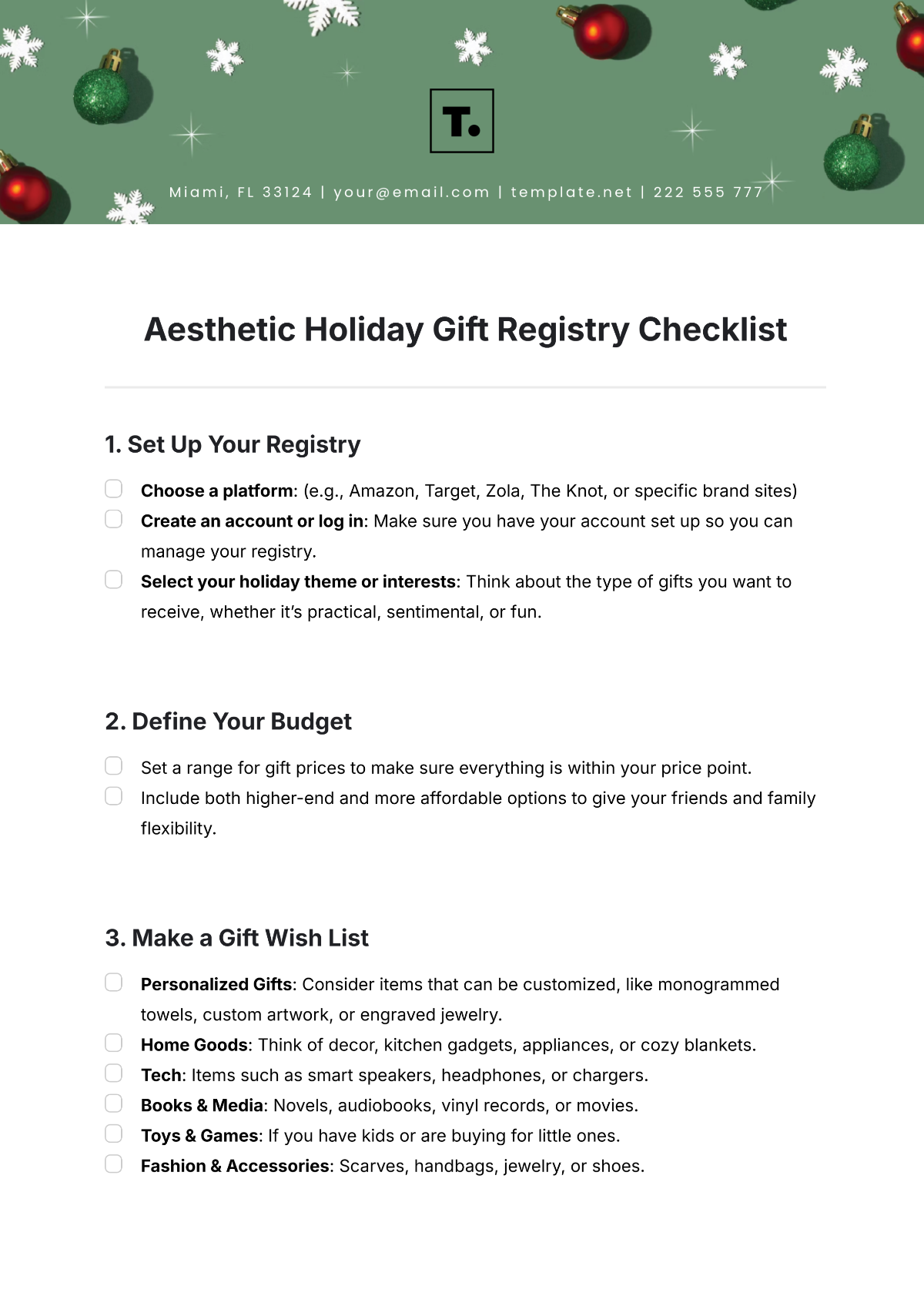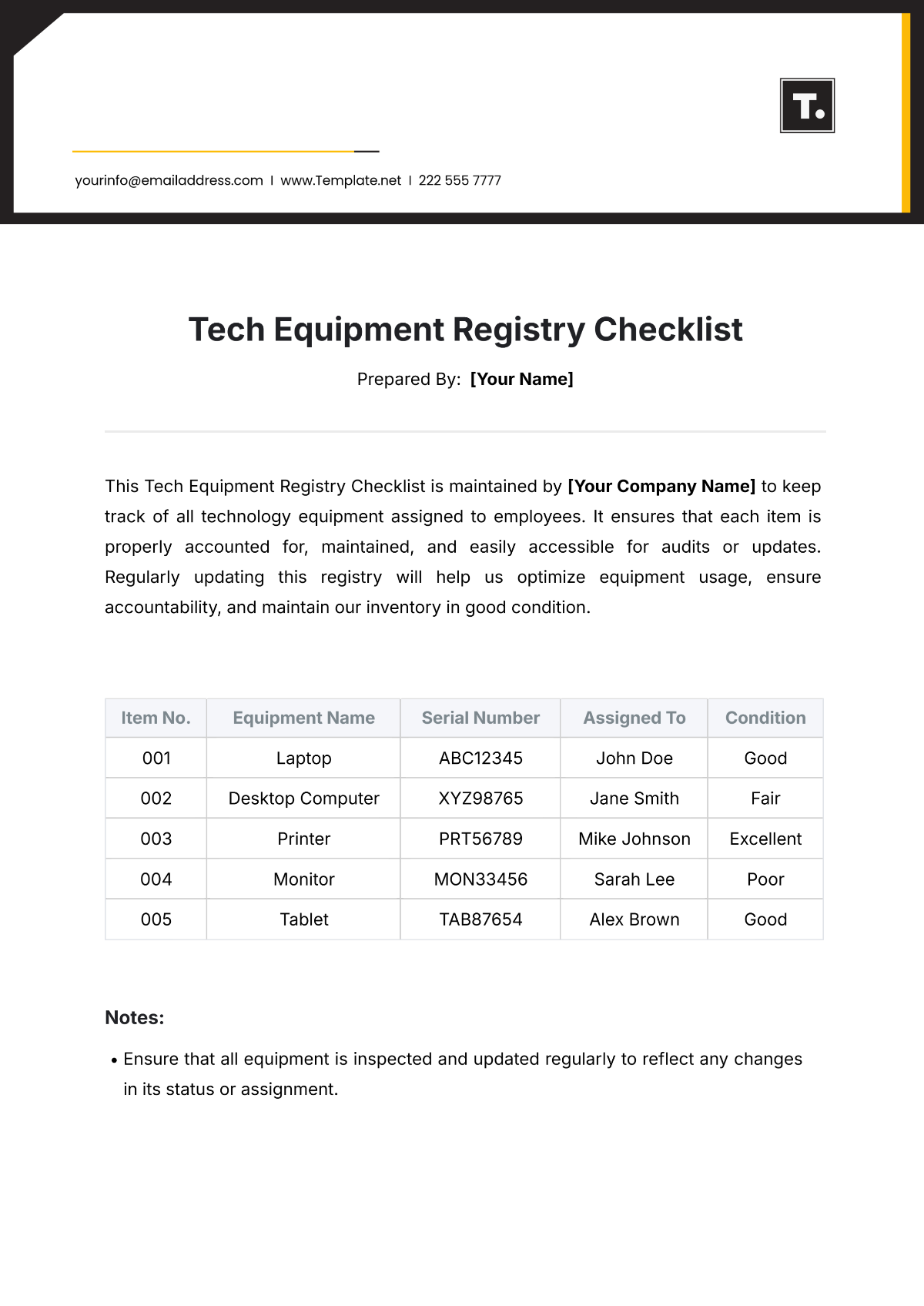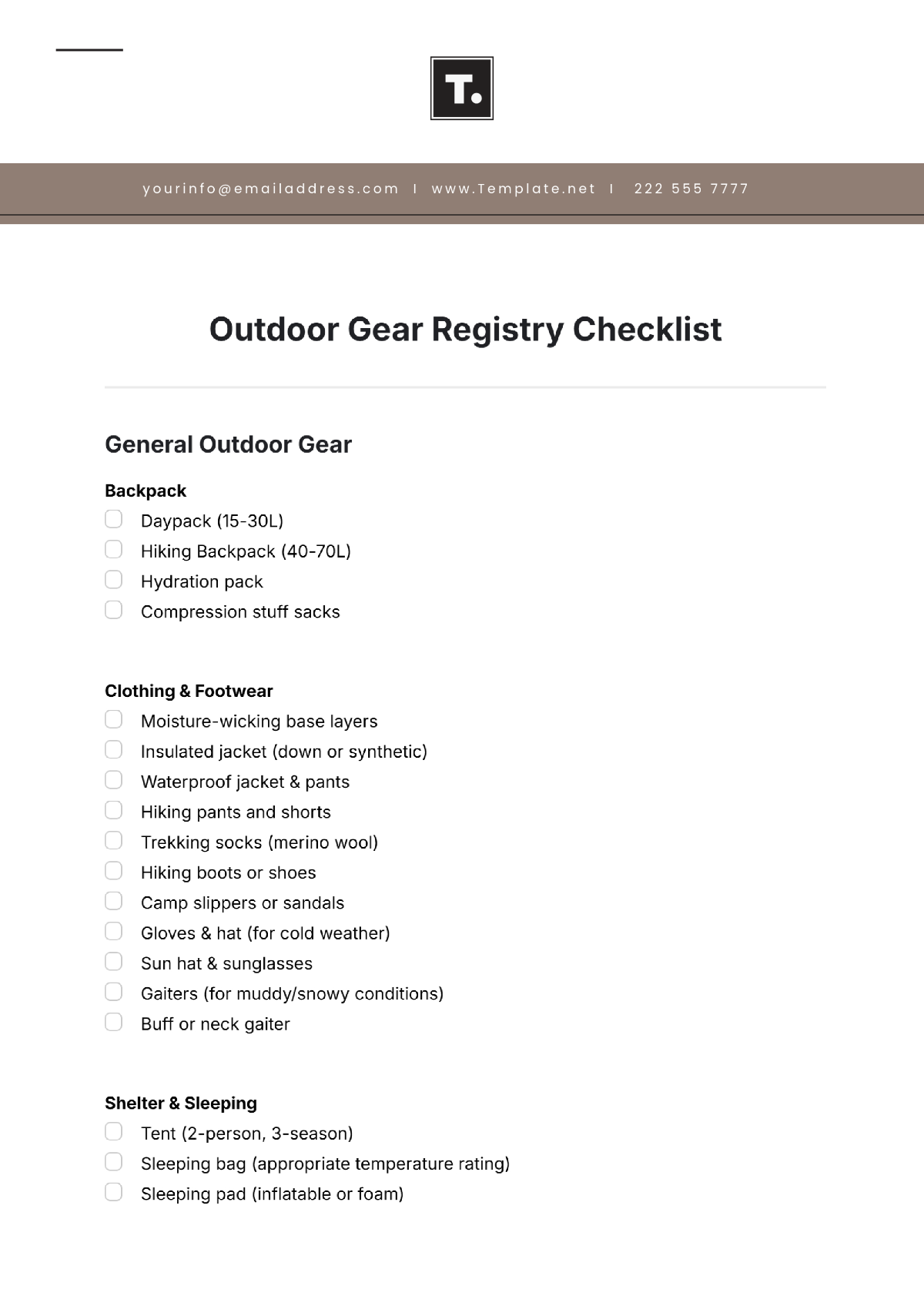Retirement Registry Checklist
1. Financial Planning
Review Retirement Savings
Confirm balance and investment strategy in 401(k), IRA, pension, etc.
Meet with a financial advisor for a retirement income plan.
Assess other retirement assets (stocks, bonds, real estate, etc.).
Estimate Retirement Expenses
Create a detailed monthly budget (housing, healthcare, lifestyle).
Include future costs such as long-term care insurance.
Consider inflation and potential emergency expenses.
Social Security
Review Social Security benefits and eligibility.
Decide the best age to start claiming Social Security benefits.
Check for any other pension benefits (company, government, etc.).
Taxes in Retirement
Understand the tax implications of withdrawing from retirement accounts.
Plan for income tax in retirement (state and federal).
Evaluate tax-saving strategies (Roth IRA conversions, etc.).
Create an Estate Plan
Draft or update your will.
Set up the power of attorney and healthcare proxy.
Consider creating a trust if applicable.
Review life insurance policies.
2. Health and Insurance
Health Insurance
Confirm eligibility for Medicare (and supplemental insurance options).
Review current health insurance (through an employer or the marketplace).
Set up long-term care insurance (if needed).
Healthcare Providers
Review medical history and ensure records are updated.
Find new doctors or specialists if needed.
Prescription Medication
Ensure prescriptions are in order and explore Medicare drug plans.
Consider a medication management plan.
Vision and Dental
Review dental and vision insurance options.
3. Retirement Transition
Retirement Date
Confirm your official retirement date with your employer.
Notify your employer about your retirement plan (2-6 months in advance).
Prepare for an exit interview and offer any knowledge transfer.
Pension or Severance Plan
Review retirement or severance package options.
Confirm payout options for pensions or retirement plans.
Downsize or Relocation
Evaluate whether to downsize your home or relocate.
Begin decluttering and organizing important documents.
Consider moving closer to family or into retirement communities.
4. Personal Preparation
Social & Emotional Readiness
Reflect on your social life post-retirement.
Create hobbies or activities you’ll enjoy to fill your time.
Build a social network or consider volunteering.
Plan ways to stay mentally and physically active.
Time Management
Plan how you’ll spend your days (travel, hobbies, family).
Set goals for learning new skills or exploring new interests.
Look into part-time work or consulting if interested in staying active.
5. Legal and Documentation
Update Legal Documents
Review or create a living will, healthcare proxy, and advance directives.
Make sure beneficiary designations are current.
Store important documents securely (wills, insurance policies, etc.).
Update Identification
Ensure driver’s license and other identification cards are current.
Consider getting an ID card for senior discounts and services.
6. Final Steps Before Retirement
Retirement Party or Celebration
Plan a retirement celebration to mark the occasion (optional).
Final Employer Details
Confirm the last day of work and ensure all paperwork is complete.
Schedule an exit interview or meeting with HR for benefit explanations.
Post-Retirement Finances
Set up automatic withdrawals or direct deposit for retirement income.
Transition from employee benefits to retirement accounts (health, life insurance, etc.).
Review Your Will and Estate Plan Again
Ensure your estate plan reflects your current wishes.
7. Stay Engaged
Retirement Activities
Plan for active involvement in the community, volunteering, or travel.
Explore options for part-time work, consulting, or pursuing passion projects.
Continue Learning
Consider taking classes or pursuing new certifications or interests.
